Life Saves the Planet Blog:
Biodiversity Variety of plant and animal species essential for ecosystem health and stability.
Variety of plant and animal species essential for ecosystem health and stability.
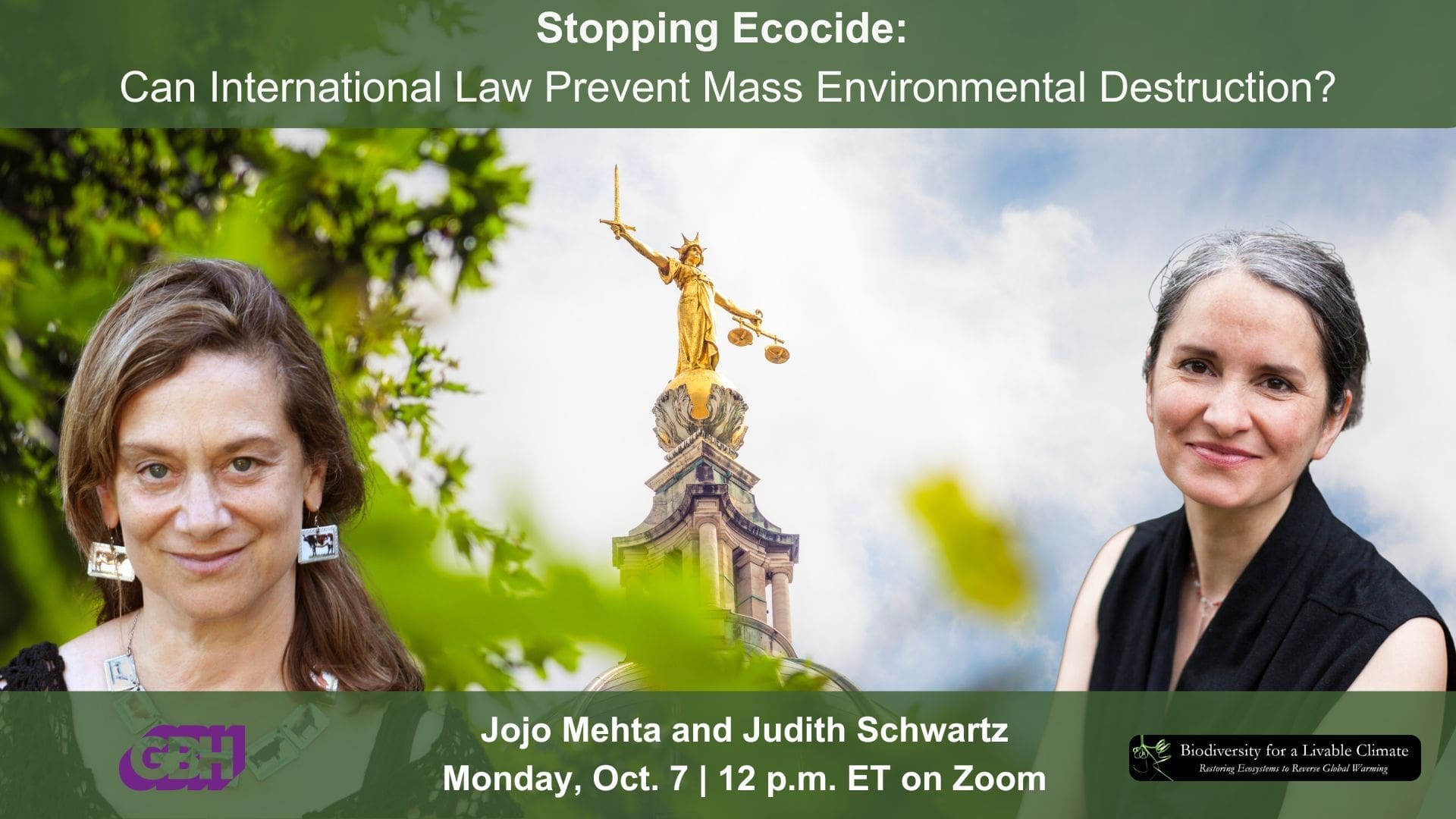
Stopping Ecocide: Can International Law Prevent Mass Environmental Destruction? Monday Oct. 7
Register Now!Diverse ecosystems represent the greatest climate action technology at our disposal. But what recourse do we have when nature itself is under attack from the world’s biggest political and economic powers? The movement to codify ecocide, that is, the intentional (or negligent) mass destruction of an ecosystem, as an international crime is gaining traction,…
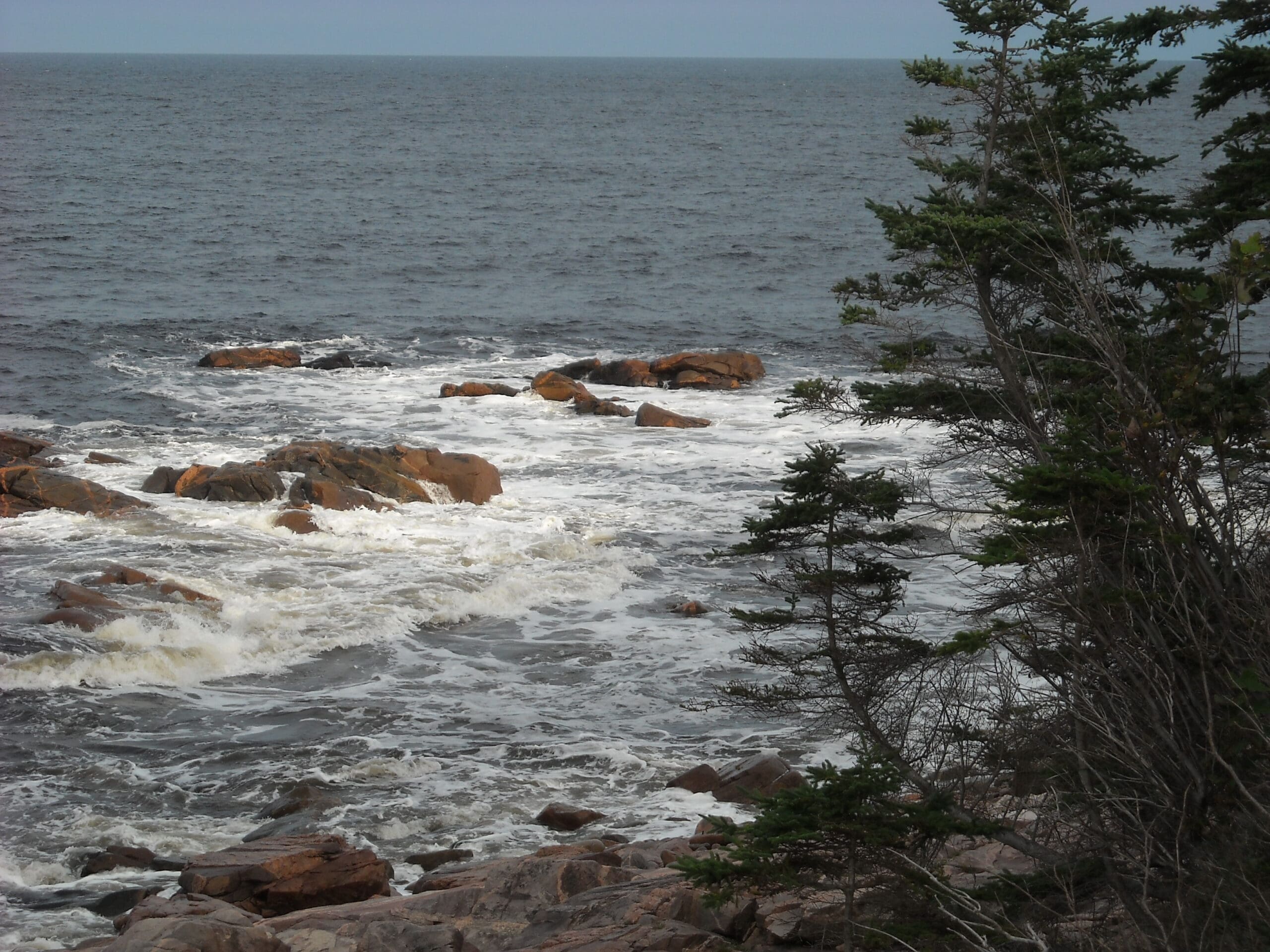
Biodiversity 11: Warming Oceans, Moving Shorelines & Sea Level Rise – with Jim Laurie
What can be done to break the ocean’s fever and cool the planet? With the oceans warming rapidly causing larger storms and hurricanes, forecasts for sea level rise ranging from 2 feet to 20 feet by 2100, and polar regions warming three times faster than the rest of the world, humanity may be facing the…
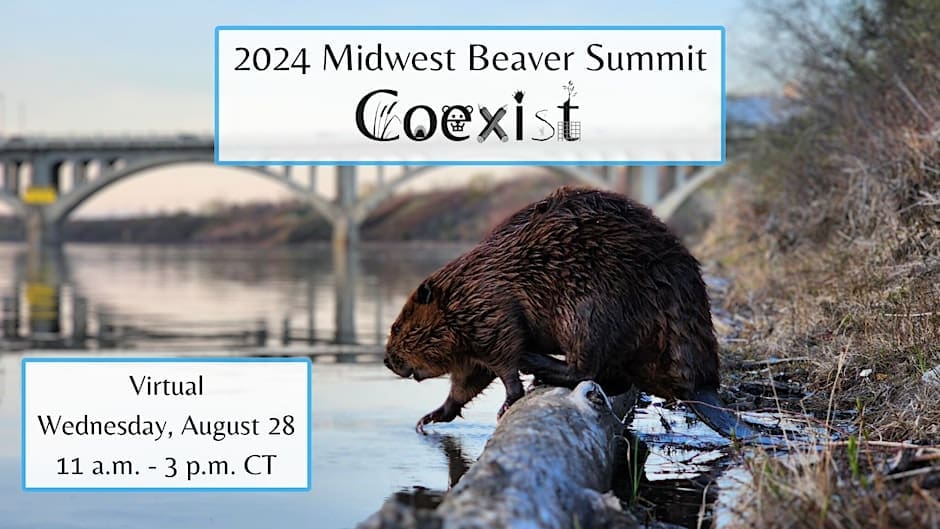
2024 Midwest Beaver Summit (virtual) – August 28 – 11 am – 3 pm Central Time
Bio4Climate is excited to co-host the 2024 Midwest Beaver Summit alongside many outstanding environmental nonprofits, land trusts, restoration practitioners, and other organizations dedicated to conservation, implementing coexistence strategies, and cultivating awareness of the importance of beavers as keystone species in our ecosystems. Join us on Wednesday, August 28 from 11 am – 3 pm Central…
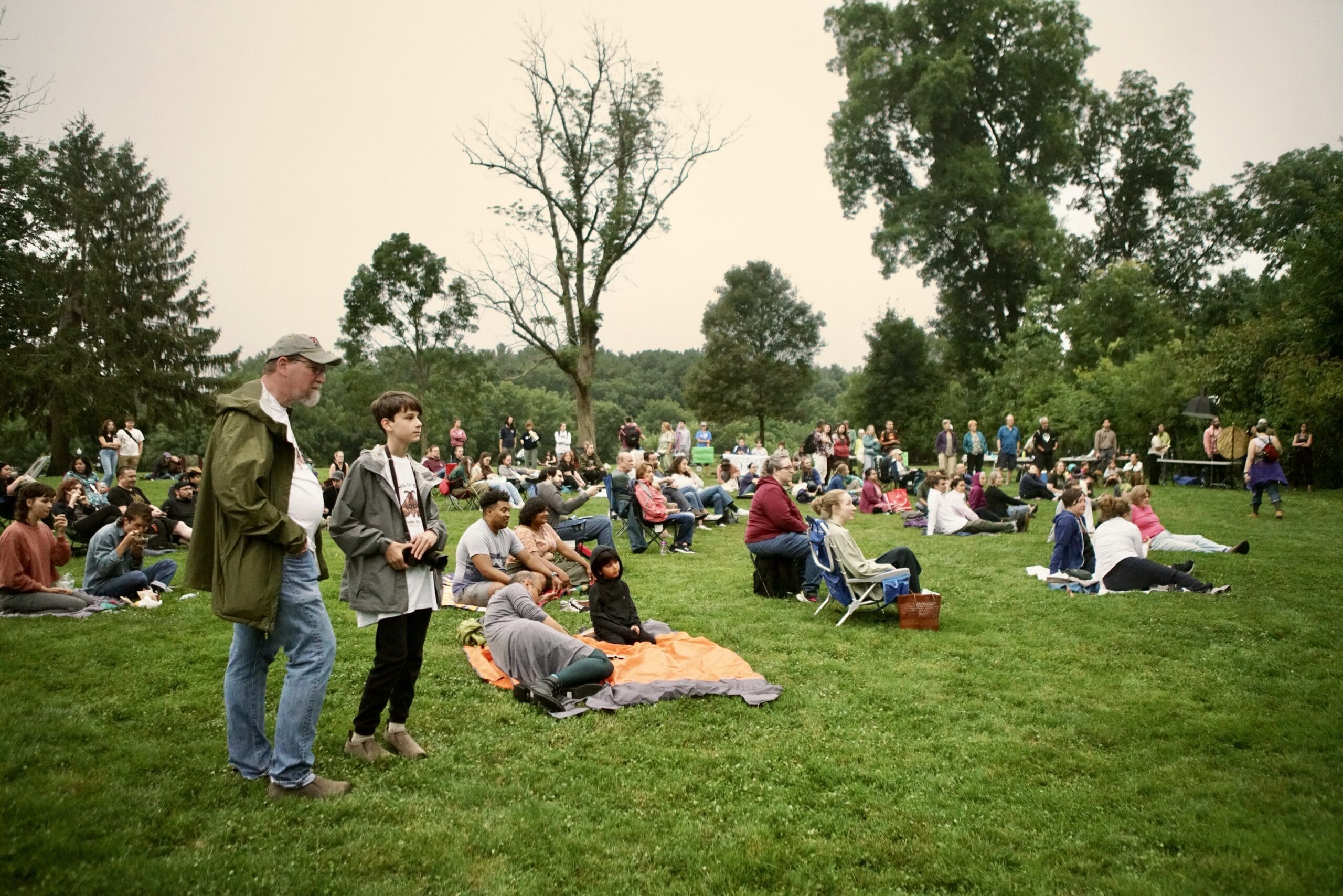
Cambridge Moth Ball 2024
On July 24, Bio4Climate and other host organizations participated in the Cambridge Moth Ball at Kingsley Park, Fresh Pond Reservation, for National Moth Week. Around 200 attendees of all ages engaged in community science, moth collecting, data collection, photography, and children’s activities. Bio4Climate partnered with Julie Croston from Cambridge Wildlife Arts to run the art…
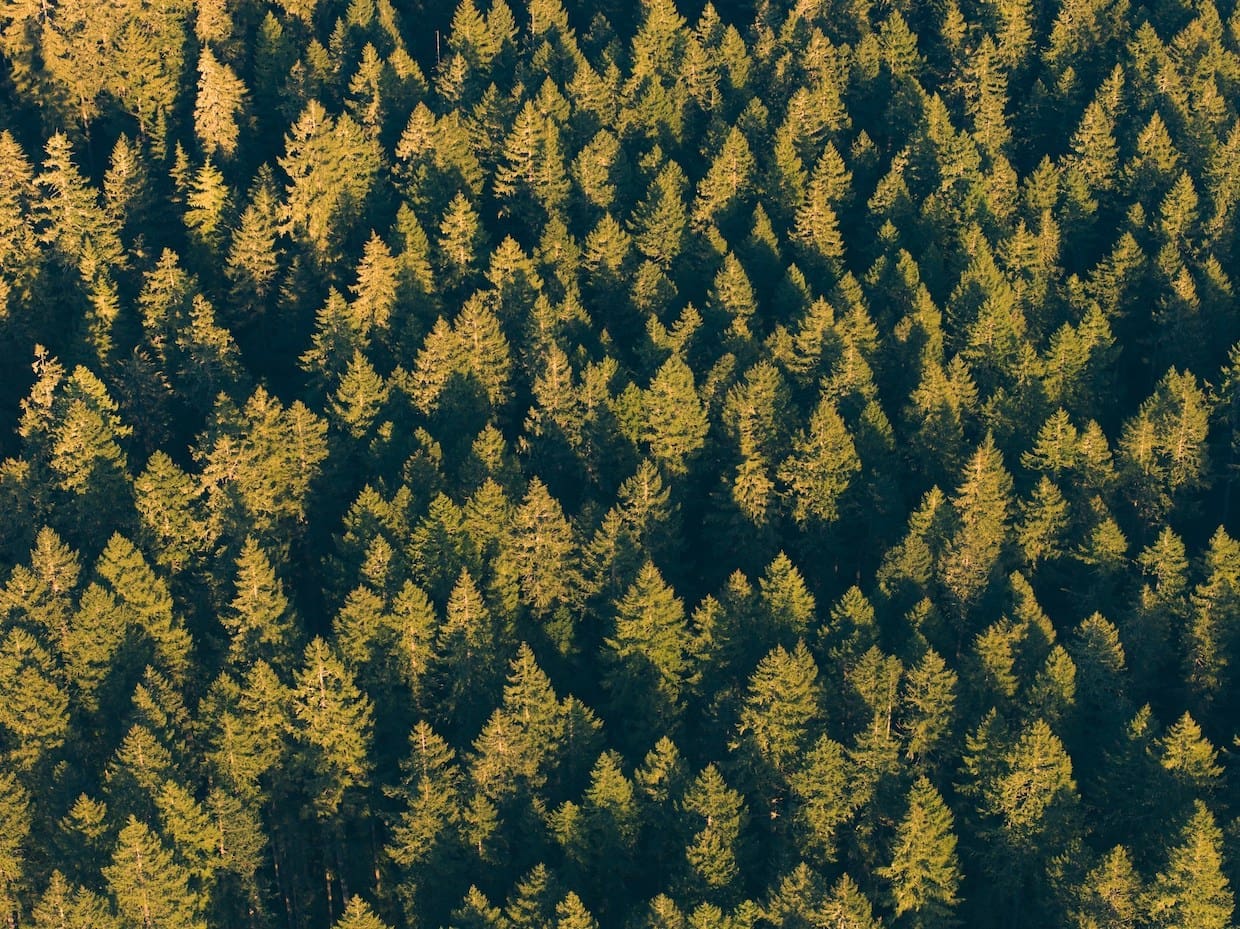
Just released: “Cooling Climate Chaos: A Proposal to Cool the Planet within Twenty Years.”
This newly published book by Peter Bunyard and Rob de Laet approaches the climate crisis and its solutions from a completely different angle. “To address the climate crisis, now demonstrably causing havoc with life-killing extreme events,” the authors write, “we must not only transform our economic and societal models towards sustainability and resilience, we must…
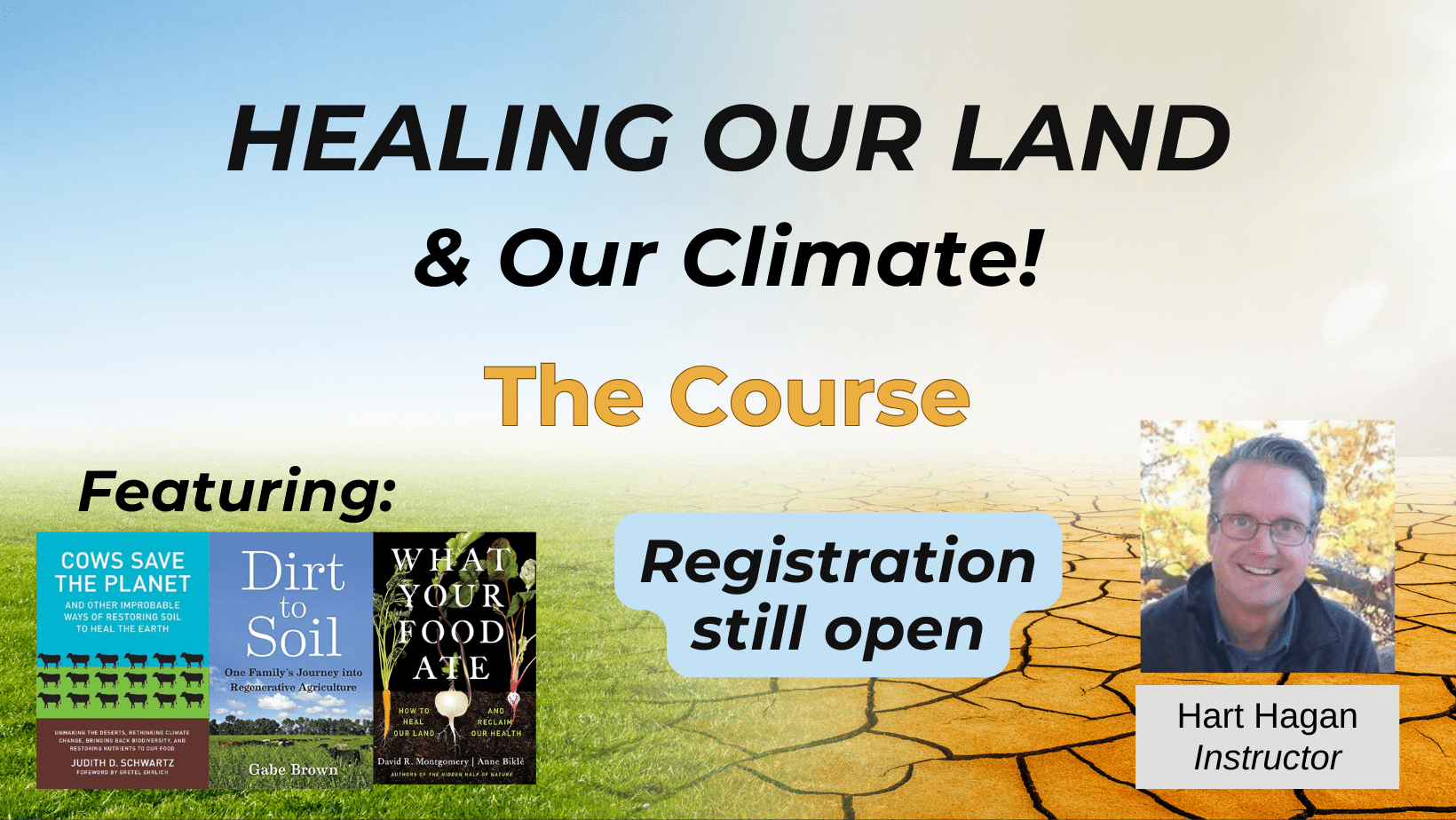
Healing Our Land & Our Climate! – Registration still open
In order to heal our climate, we must FIRST heal our land. In order to heal the land, we must restore the health of the soil and our ecosystems. Join Hart Hagan for this course on Healing Our Land & Our Climate! from July 9 – September 24. Classes are weekly on Tuesdays at either 12 noon or…
![[MA Local] Emerald Tutu Floating Wetlands Tour [MA Local] Emerald Tutu Floating Wetlands Tour](https://b2408965.smushcdn.com/2408965/wp-content/uploads/emerald-tutu.jpg?lossy=2&strip=1&webp=1)
[MA Local] Emerald Tutu Floating Wetlands Tour
July 23, 2024, 10am to noon. Join local students of Jim Laurie’s Symbiosis Team to get an up front and personal view of the floating wetlands designed for Boston Harbor. This is the innovative project of modular floatingwetlands in East Boston that was shown in the documentary, Inundation District, on sea level rise in Boston.…
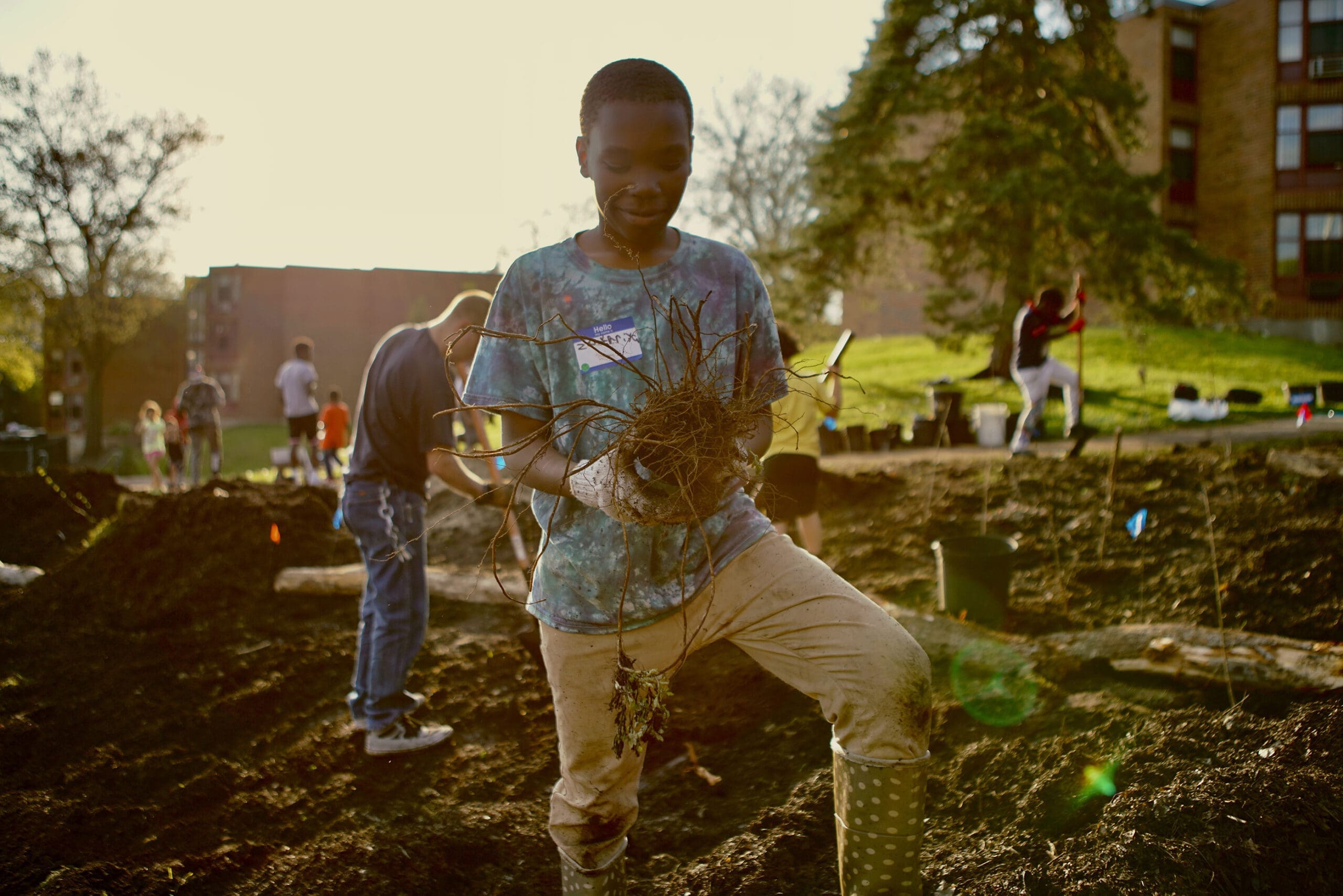
From Parking Lot & Lawn to Miyawaki Forests: Transforming Worcester, MA
A transformation is underway in Worcester, MA. In this mid-sized city in Central Massachusetts long known for its industrial activity, city leadership has undertaken ambitious initiatives to address some of their climate resilience goals using the Miyawaki method. Together, Bio4Climate, BSC Group, and the City of Worcester planned and created two Miyawaki Forests in the…
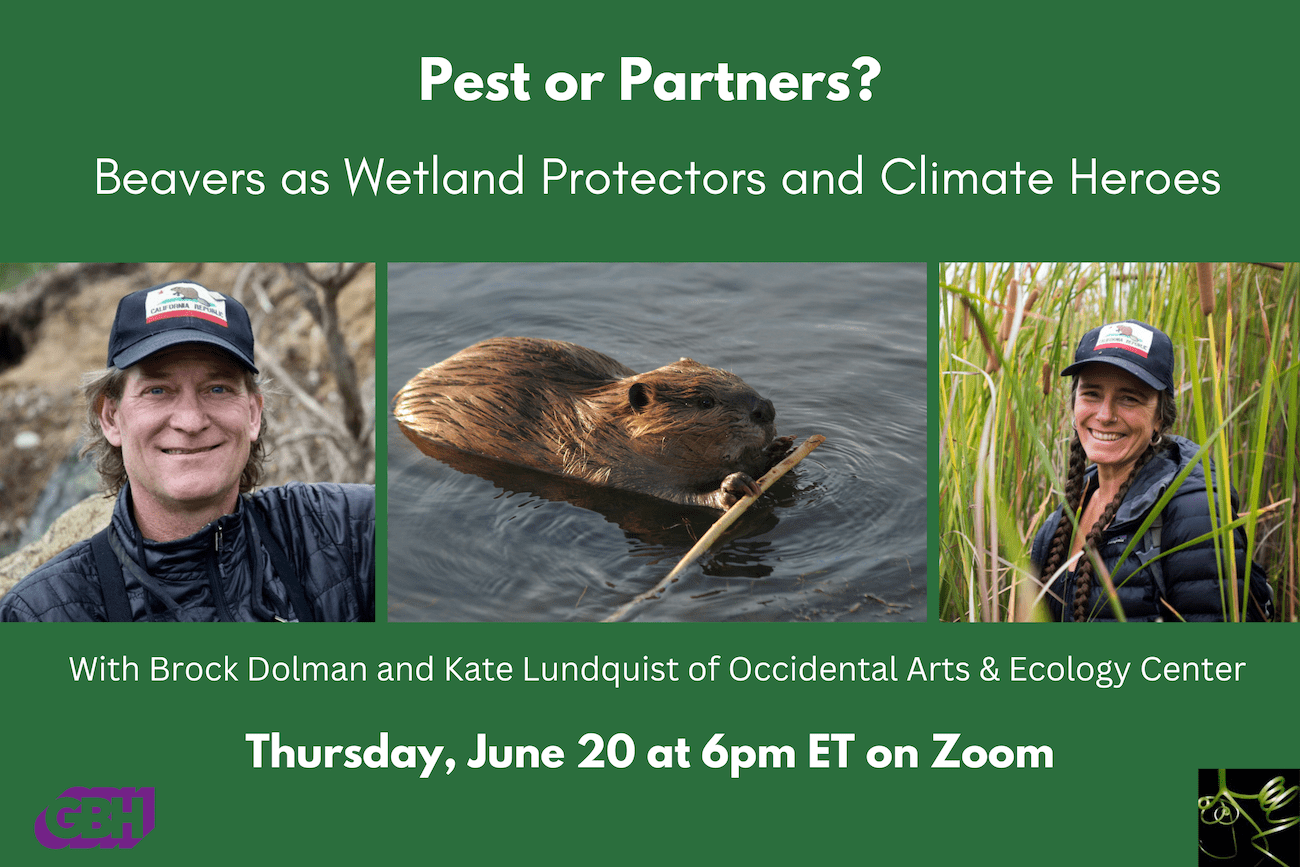
Beavers as Wetland Protectors and Climate Heroes – Thursday June 20
How can one furry critter can help us restore wetlands, protect biodiversity and mitigate both floods and fires. Brock Dolman and Kate Lundquist will shared their insights on beavers’ beneficial role as ecosystem engineers, and lessons from their successful support of a recent state-led Beaver Restoration Program in California. Watch the recorded event. As WATER…
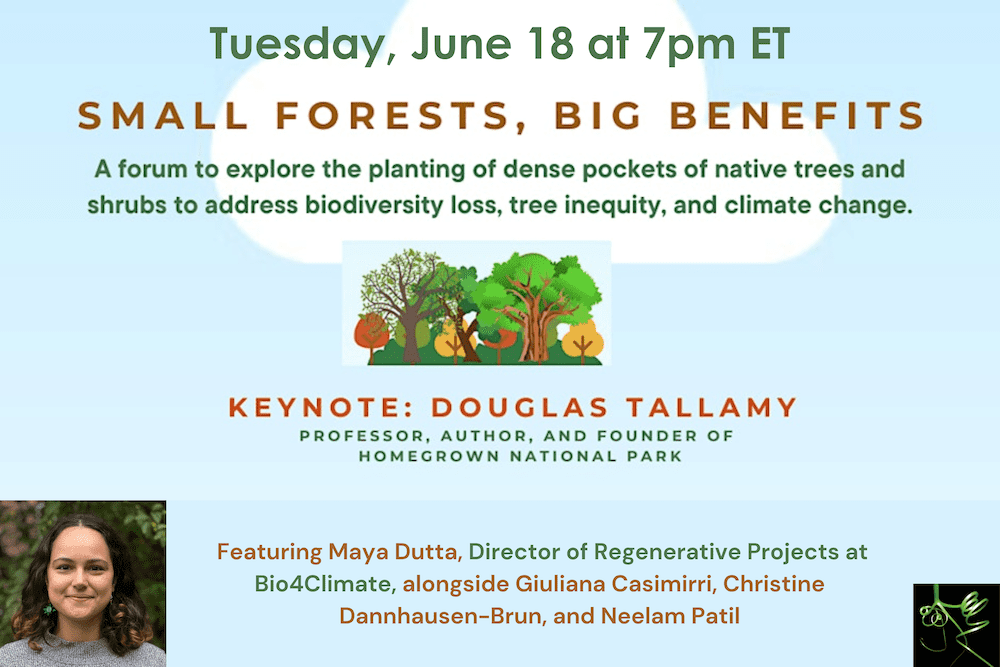
Small Forests, Big Benefits – Tuesday June 18
On Tuesday, June 18 at 7pm ET, we participated in a comprehensive forum on Miyawaki Forest adoption across the US. Watch the recording here! In this online event, Bio4Climate’s Director of Regenerative Projects, Maya Dutta, joined keynote speaker Douglas Tallamy and three other national leaders to explore how mini-forests of native trees and shrubs can…
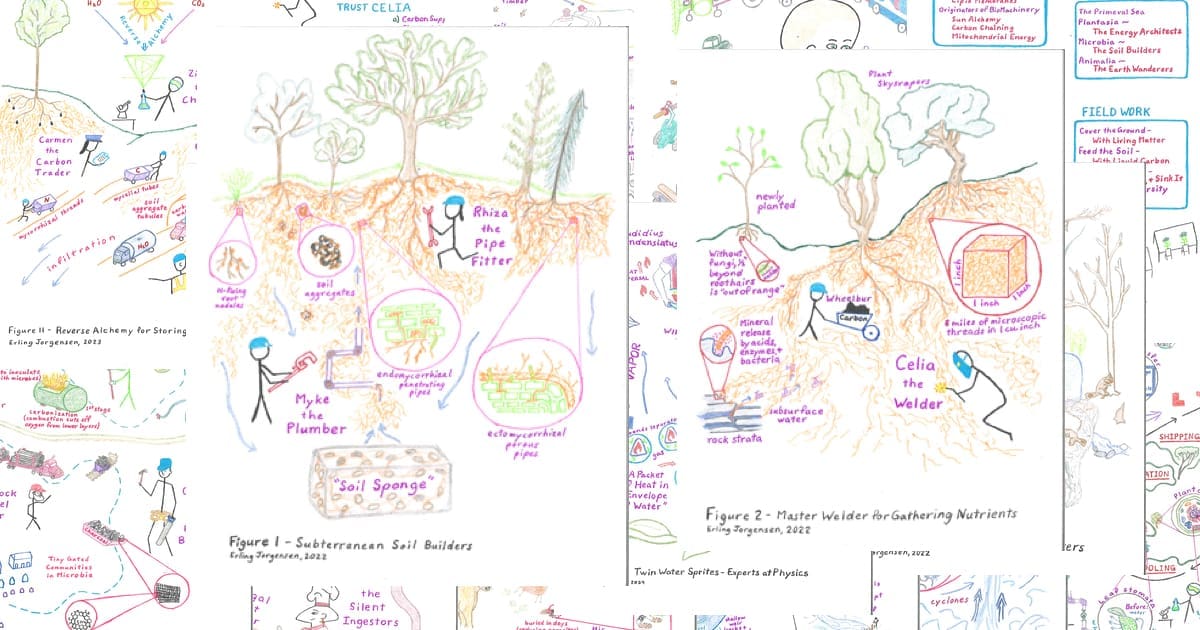
Journey of an Apprentice
Introduction by Jim Laurie Erling Jorgensen was a student in my “Systems Thinking and Scenario Building” course (Biodiversity 6) in the summer of 2022. He is determined to learn how life processes work and develop a scenario of restoring these processes. His goal is also to create a story that young people and adults with…
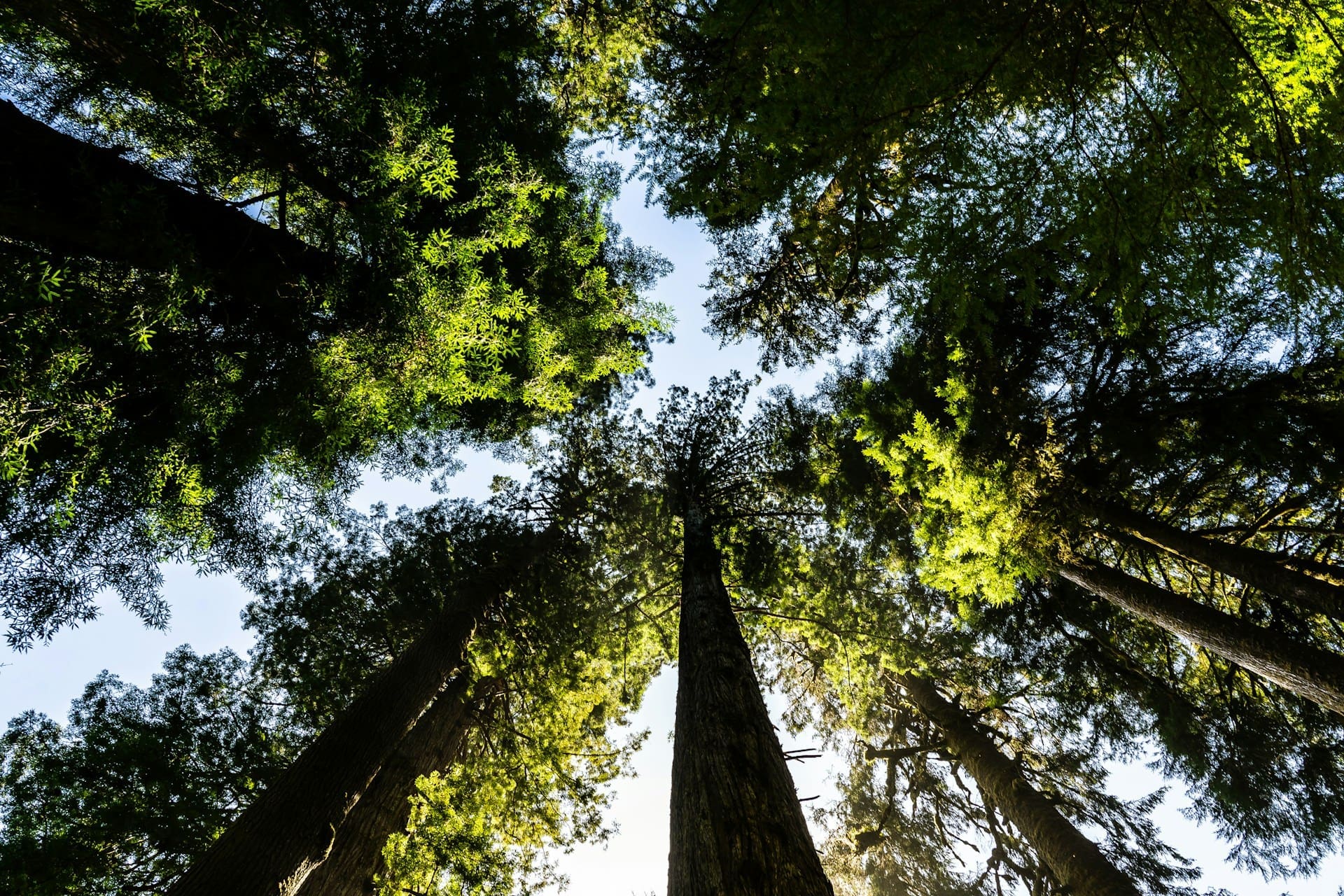
Signing on to Protect Forests
We, the undersigned organizations, are writing with the hopes of establishing a dialogue regarding the October 17, 2023 joint comment letter sent to Congress by the Outdoor Industry Association, Outdoor Alliance, and The Conservation Alliance concerning the Farm Bill.
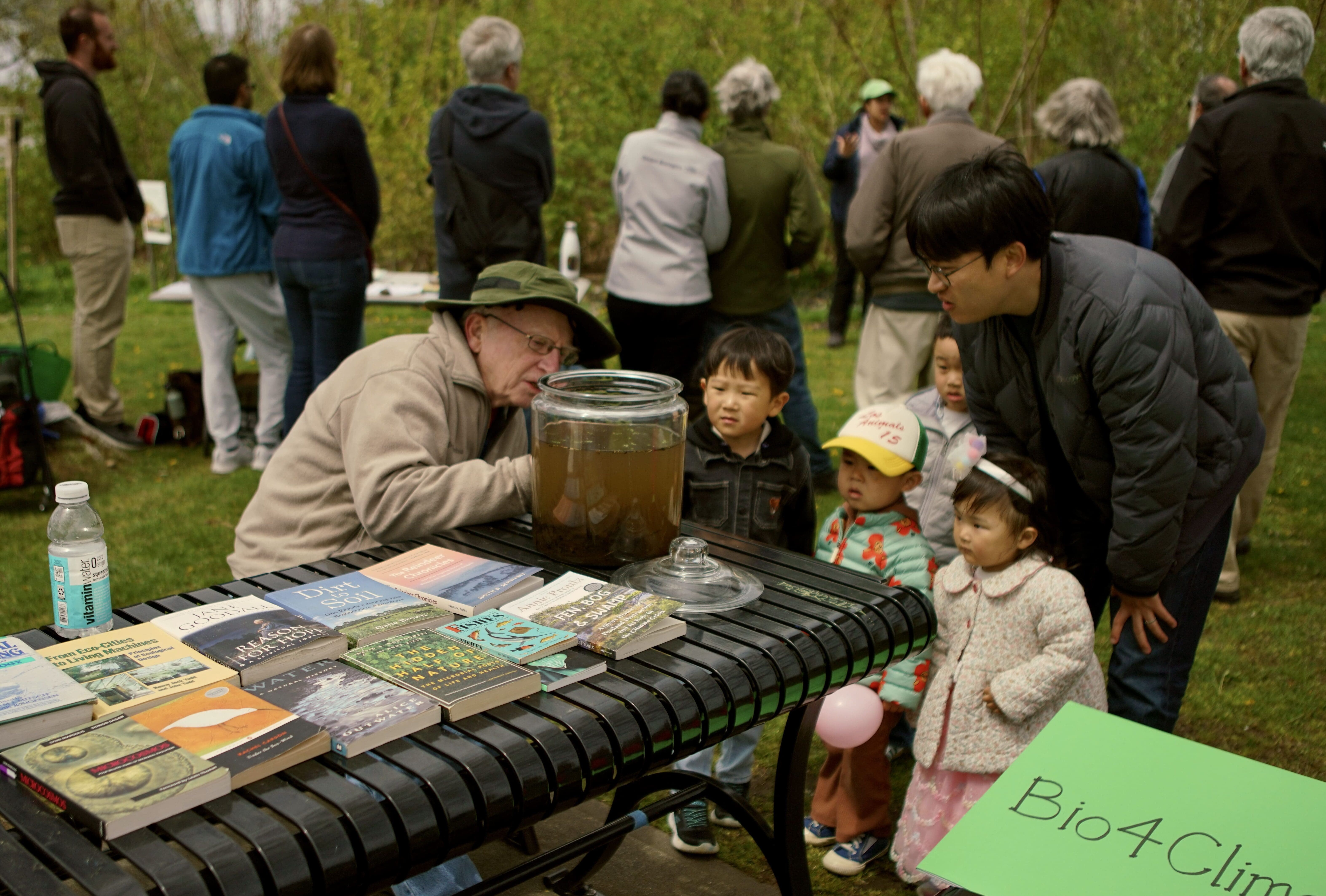
Biodiversity Day: A Community Celebration
By Paul Barringer and Jean Devine of Native Plant Community Gardeners Our first Biodiversity Day festival was a success! On Saturday, May 4th, over 120 visitors came to Danehy Park, Cambridge, to join birding tours, Miyawaki Forest tours, learn about pollinator gardens, native plants, and ecosystem restoration from ten local environmental organizations who joined us…
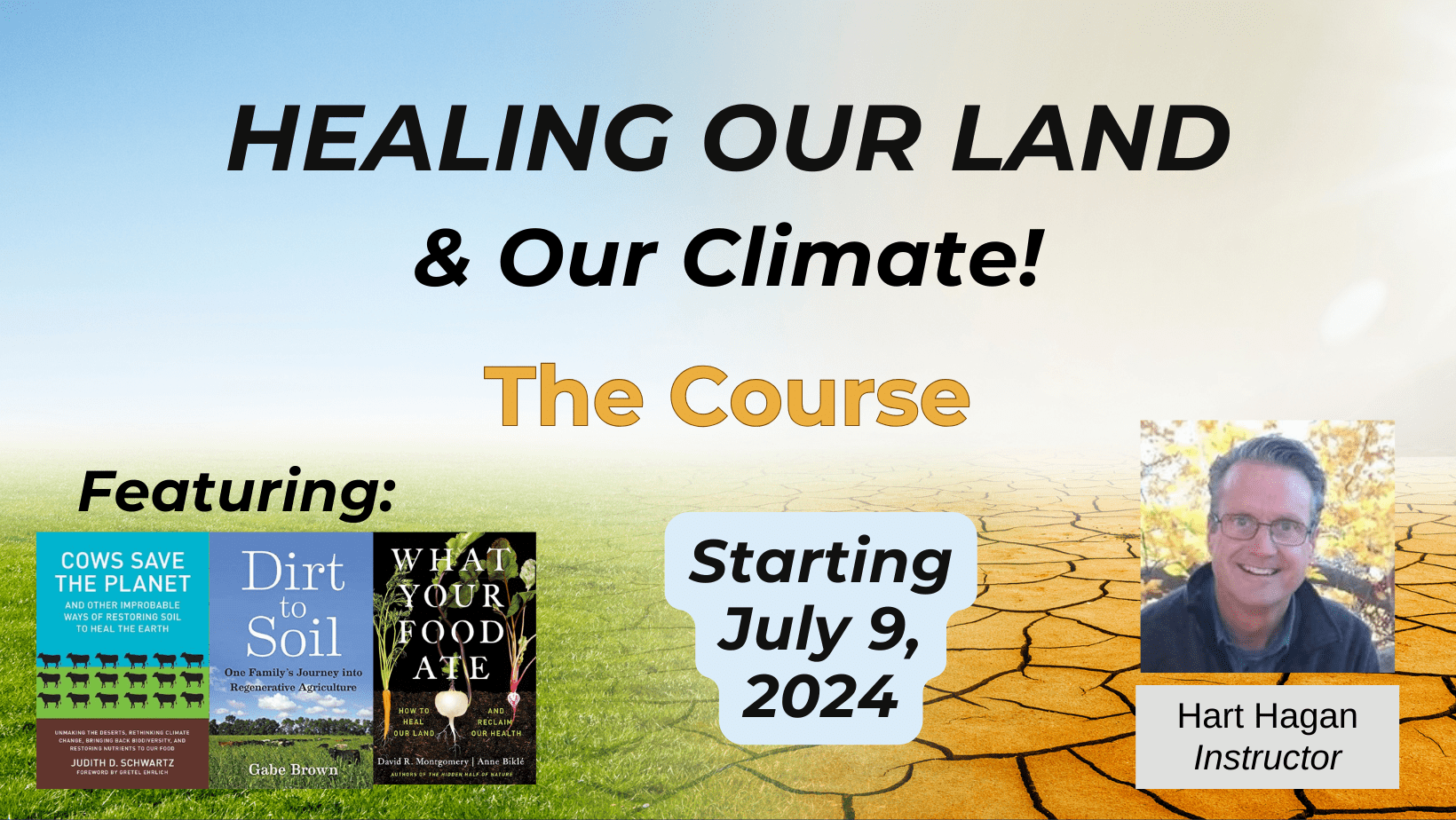
Healing Our Land & Our Climate!
Healing Our Land & Our Climate! July 9 – September 24, 2024 Tuesdays: 12 noon -or- 7 pm ET What if we could deal with the causes of climate change and at the same time deal with its effects? What if we could prevent flooding, drought and wildfires and at the same time cool our…

Cool Forests for a Hot World
We affirm the need to restore the five billion hectares of degraded land worldwide but we have also found a way to bring the power of eco restoration home. Home to our own communities; Home to those most in need of a healing shot of nature; By planting tiny forests in urban areas, using the…
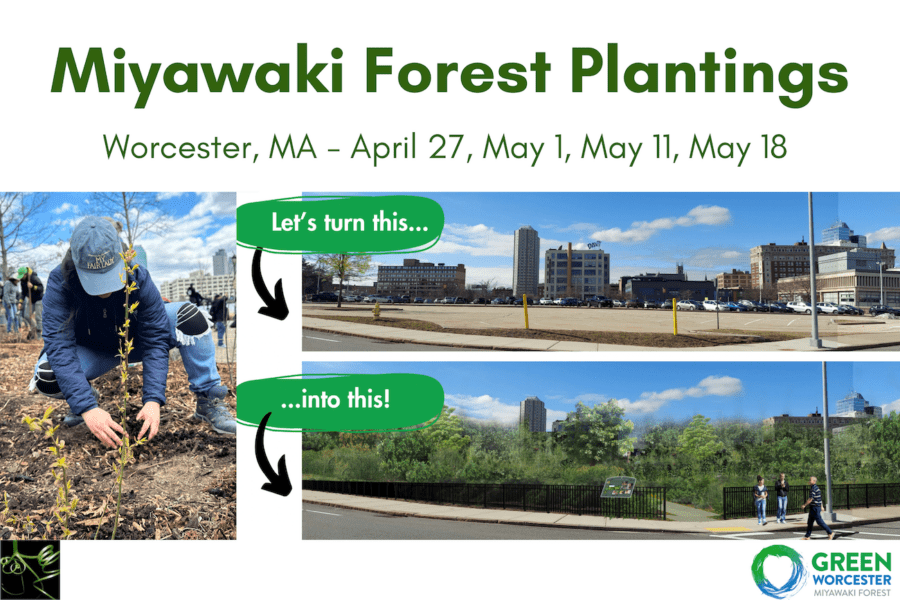
Miyawaki Forest Planting – Extra Installation Date June 12
This Spring, we are planting the first two Miyawaki Forests in Worcester, MA. These dense, biodiverse, native pocket forests will bring cooling, beauty, and resilience to the urban landscape. Join us for one additional planting day at Plumley Village Apartments on Wednesday, June 12 at 3pm. Come ready to get your hands in the soil…
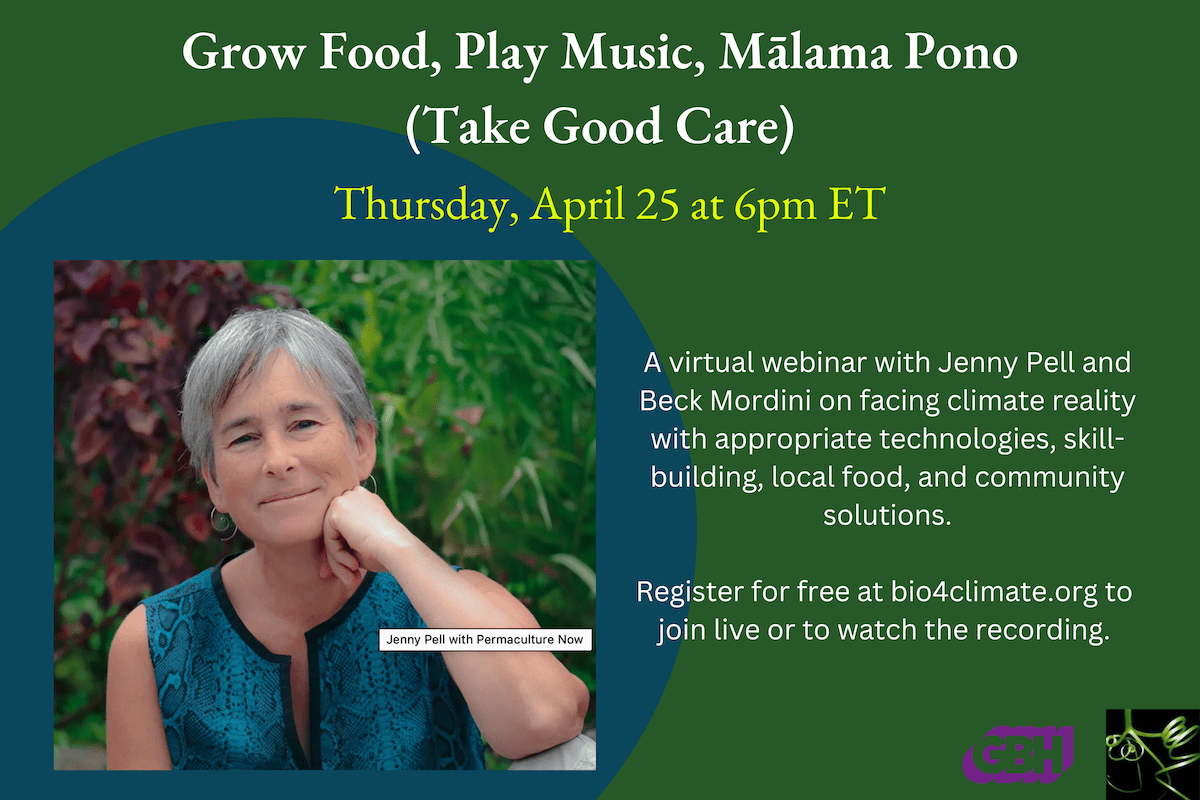
Grow Food, Play Music, Mālama Pono (Take Good Care) – Thursday, April 25, 6pm ET
On Thursday, April 25 at 6pm ET, Beck Mordini and Jenny Pell held a lively conversation about facing our pretty scary future with integrity, hope, plenty of know-how, and a great sense of humor. We dove into climate reality, appropriate technologies, skill-building, local food, and neighborhood solutions that will inspire you to jump into your own…
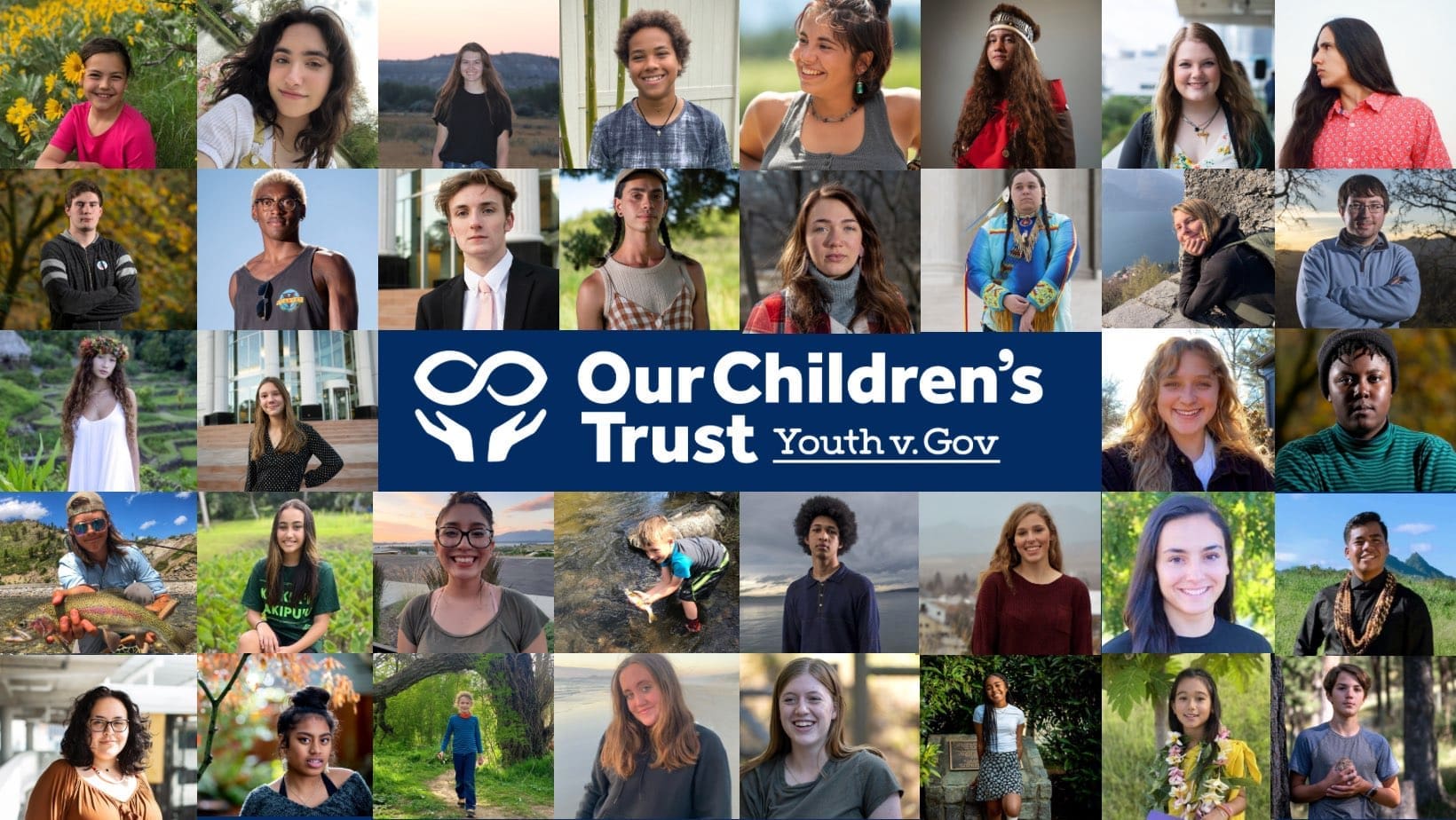
Youth-Powered Climate Justice with Our Children’s Trust – Thursday, April 25 – 12 noon
On Thursday, April 25 at 12:00 noon ET on Zoom, Mat dos Santos and Laura Gehrke of Our Children’s Trust will explain how 16 youth plaintiffs successfully sued the State of Montana to protect their right to a clean and healthful environment, and how youth in six other cases in the U.S. and Canada are…
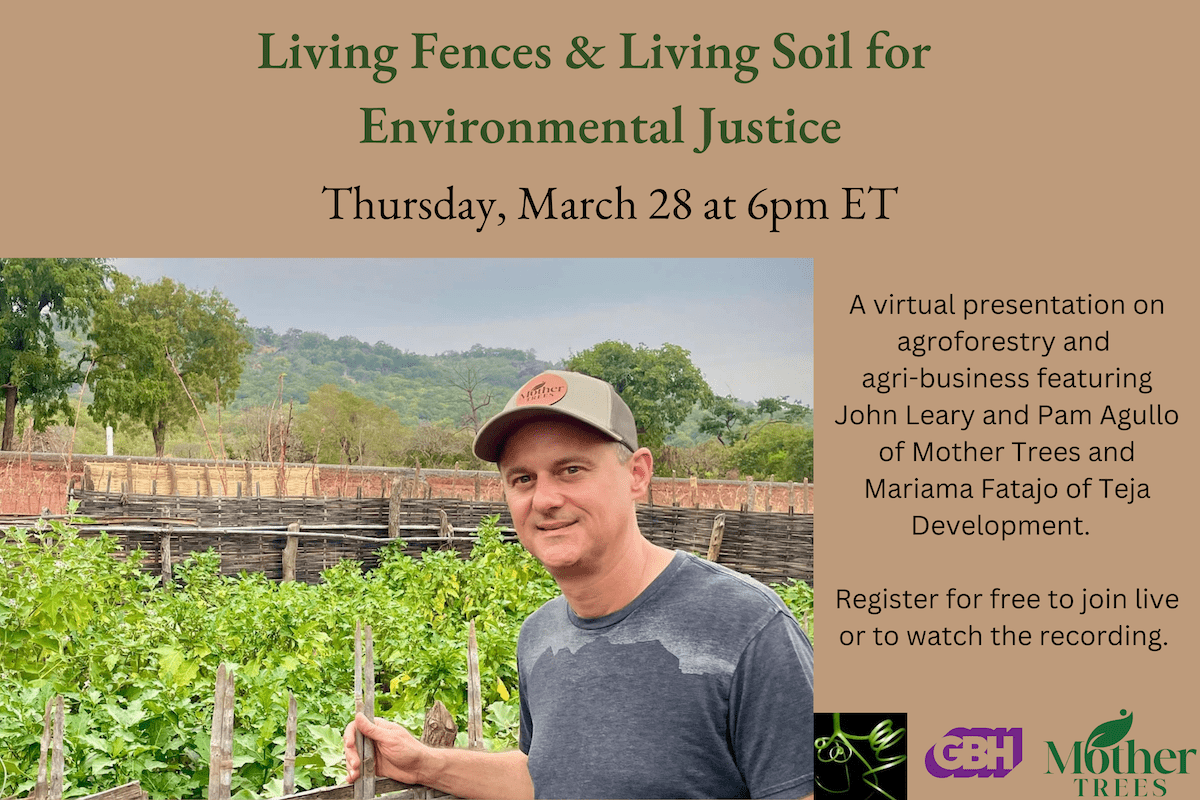
Living Fences & Living Soil for Environmental Justice
On Thursday, March 28 at 6pm ET, we dived into how agroforestry and eco-restoration initiatives advance environmental justice in frontline communities around the world. Our latest Life Saves the Planet lecture featured John Leary and Pam Agullo of Mother Trees, an organization working on agri-business in Senegal, and Mariama Fatajo of Teja Development, supporting eco-restoration…
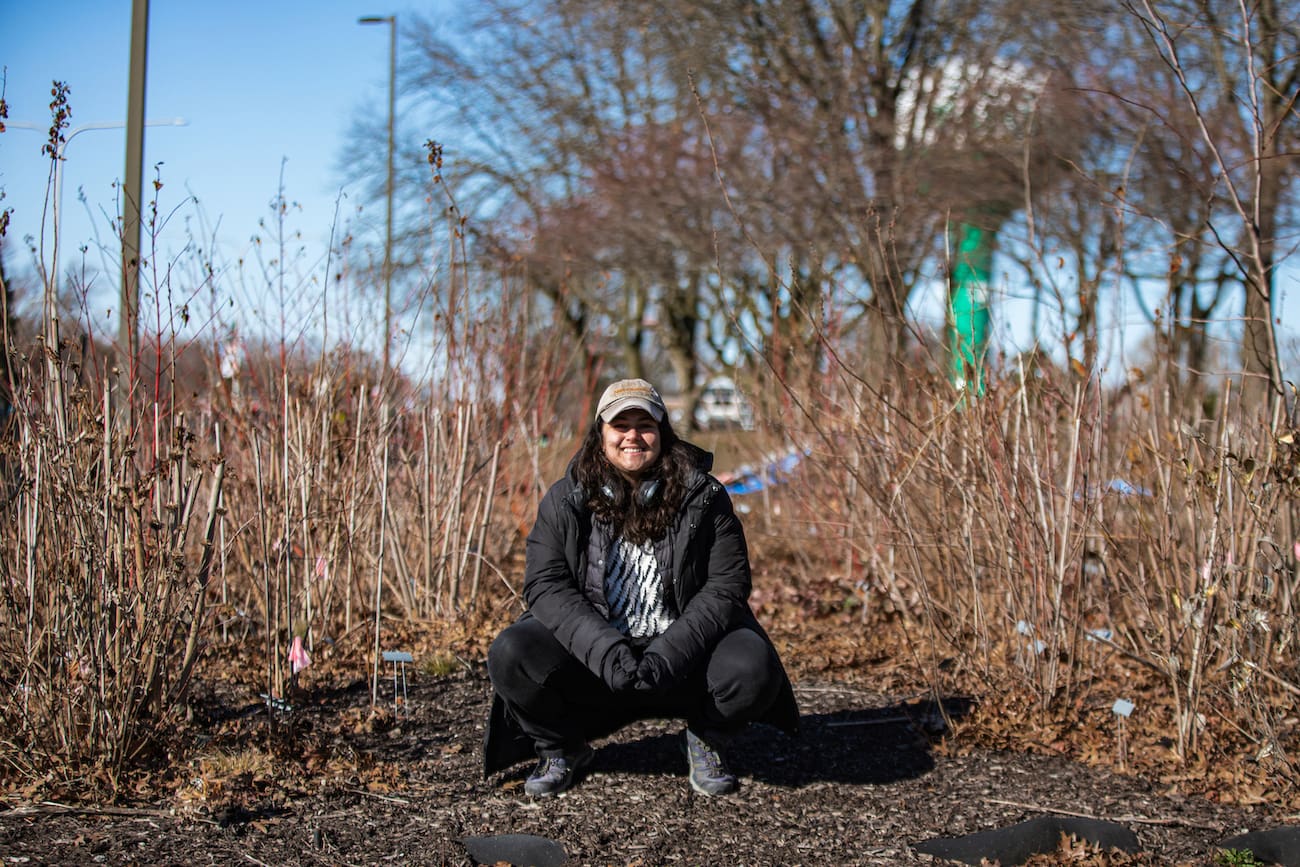
Rewilding the Windy City
I’ve loved Chicago from the first day I set foot there, and I’ve missed the Windy City since I left after college in 2018. When I had a chance to visit two weeks ago, I made it a point to try to understand Chicago’s ecosystems better, and check in on the many ways communities across…
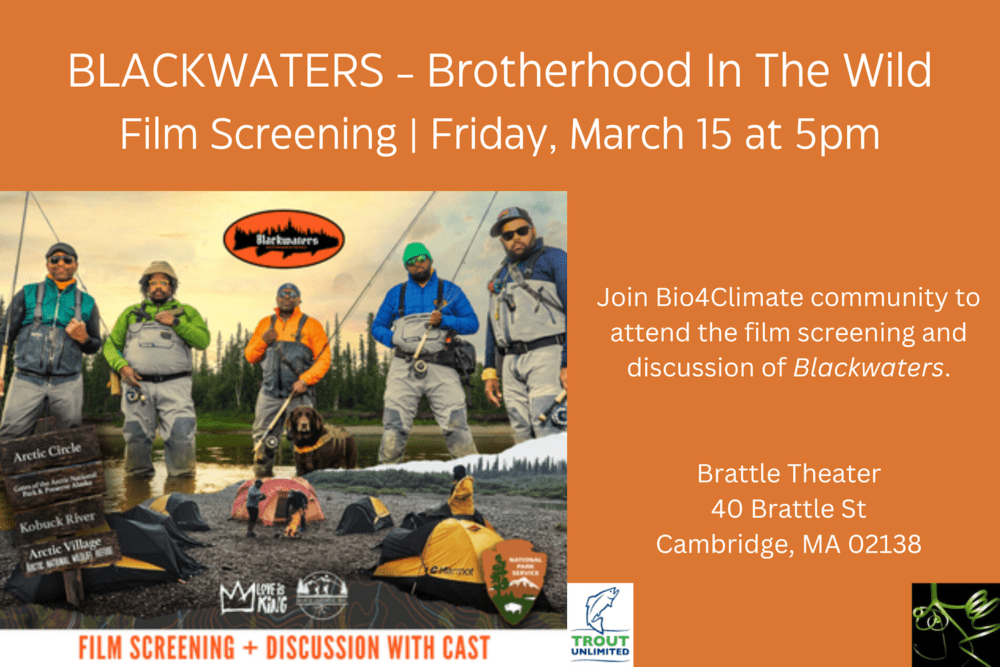
Blackwaters Film Screening and Discussion – Friday, March 15
Join Bio4Climate community members for the Cambridge screening of a groundbreaking new film, BLACKWATERS – Brotherhood In The Wild. We are proud to co-sponsor this free screening along with other organizations and the hosts at the Greater Boston Chapter of Trout Unlimited. To join our meetup, RSVP here and make sure you register with Trout…
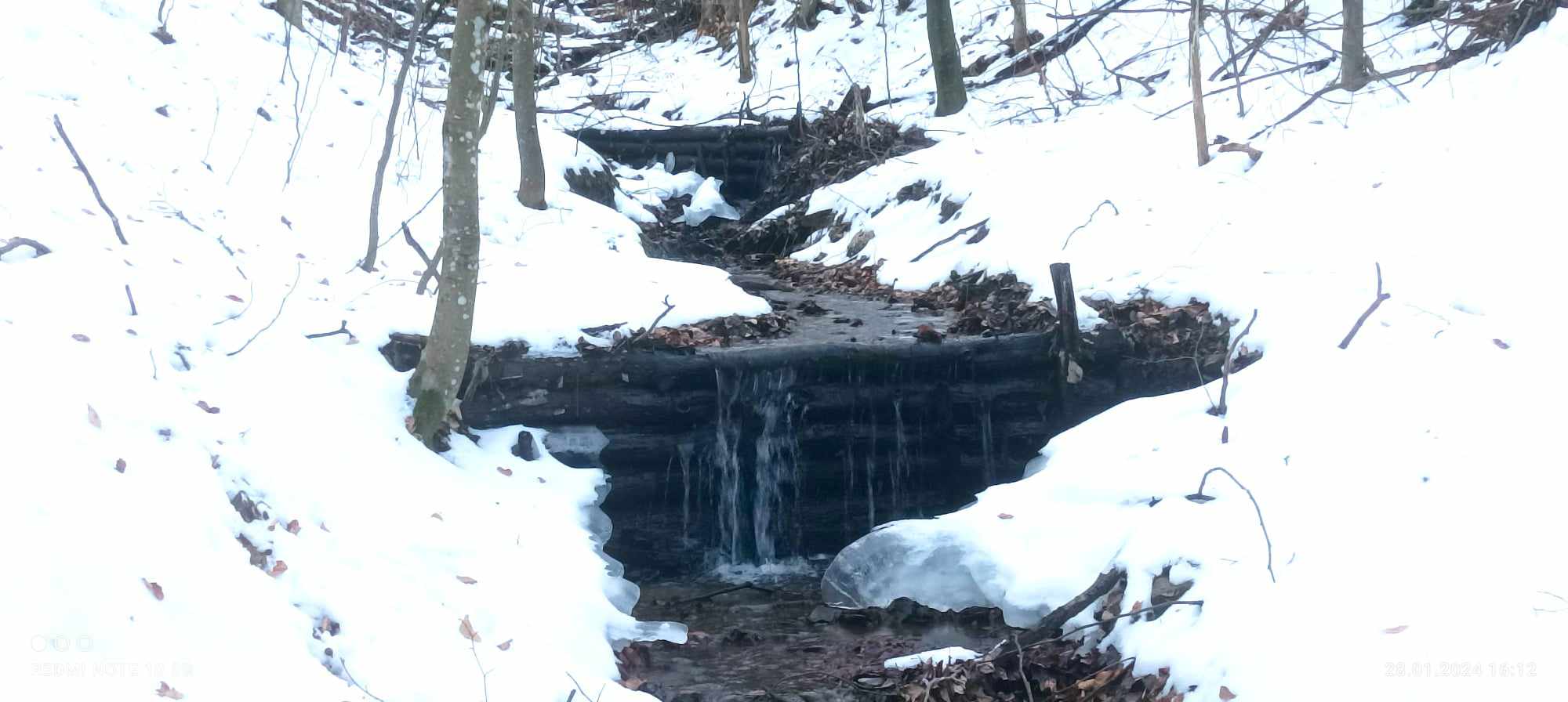
Slow Water Romance
As Valentine’s Day approaches, we invite you to experience a romantic journey in a winter wonderland. As the temperatures rise in February or earlier in our warming world, the snow melts, and we realize that the water cycle is a precious gift from the sun to all living creatures on Earth. Without the sun’s energy,…
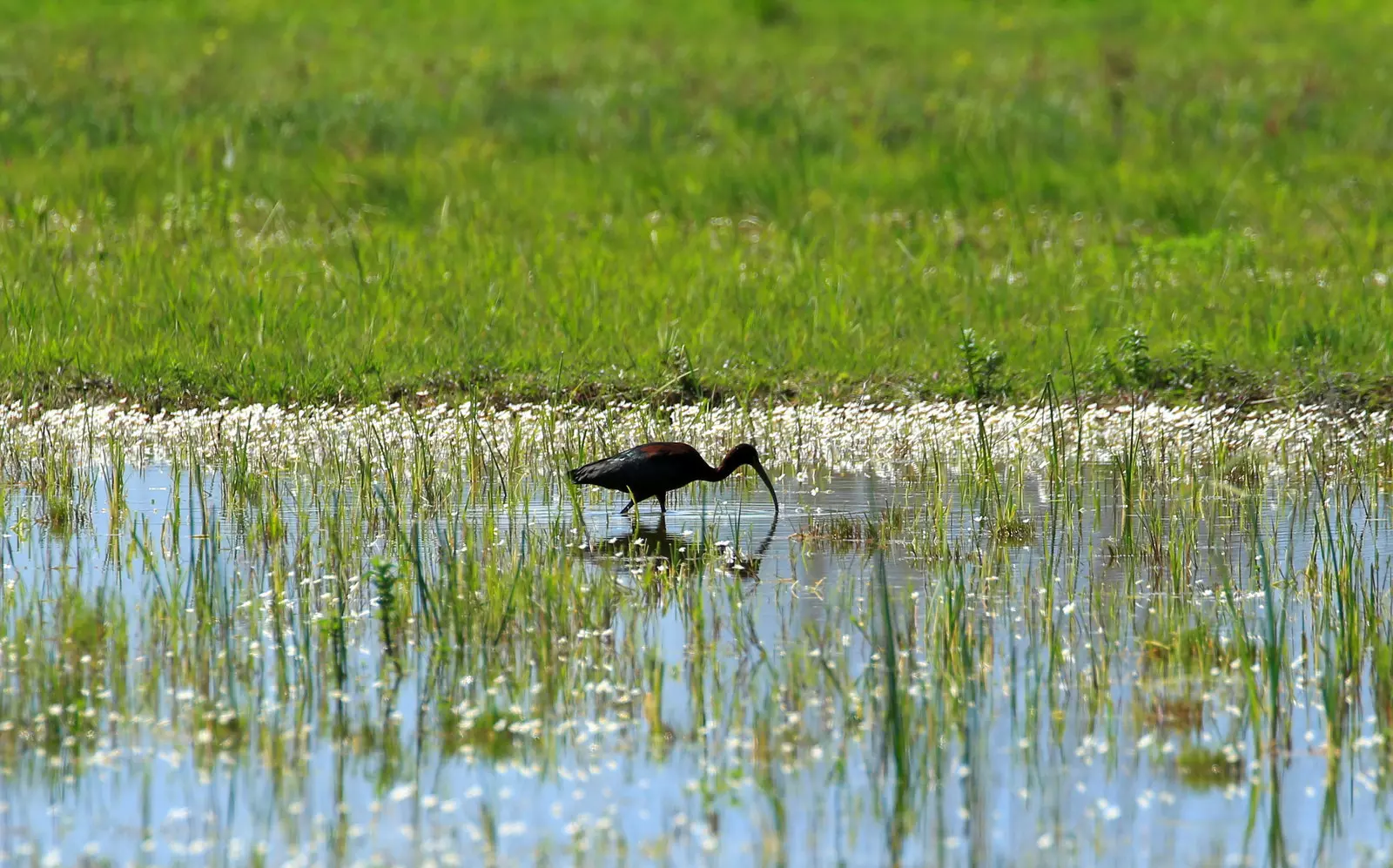
Biodiversity Deep Dive: Beavers, Wetlands, and Living Shorelines
Starting Wednesday, February 21, Jim Laurie begins his 12 week Biodiversity Deep Dive course. Join us for an exploration of wetlands, shorelines, the water cycle, and the solutions powered by a systems approach to climate. This course meets every Wednesday, starting February 21 and running through May 8, 2024. Sessions will be held from 12…
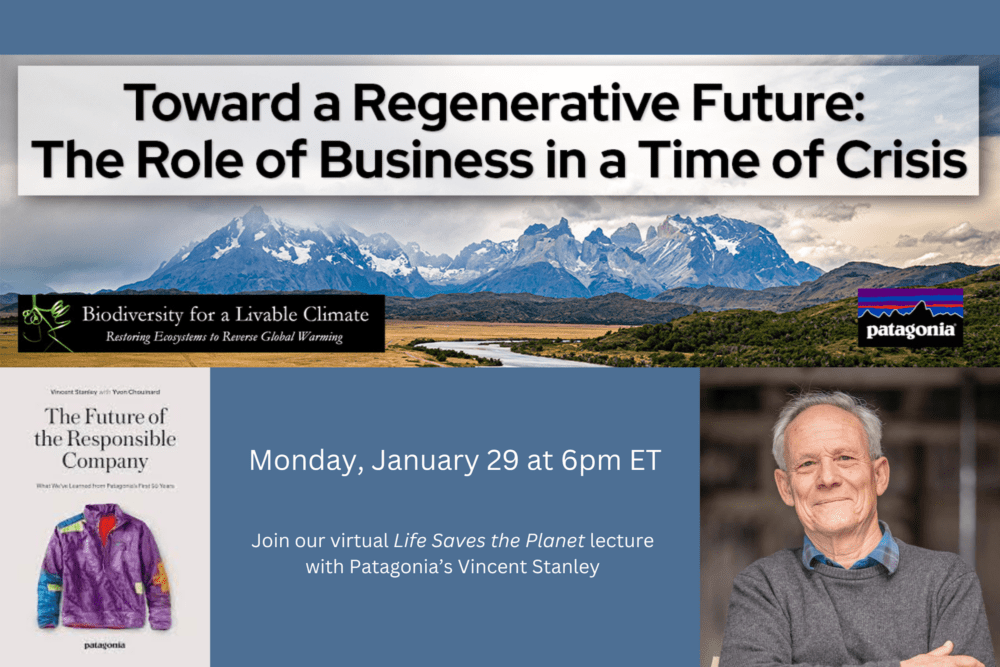
Toward a Regenerative Future – Monday, January 29 at 6pm ET
On Monday, January 29, Vincent Stanley of Patagonia joined our Life Saves the Planet lecture series to discuss the role of business in pivoting to regenerative systems. It is easy to vilify globalization and corporate America, but what would happen if the vast resources of the world economy turned towards eco-restoration, fair trade and uplifting…
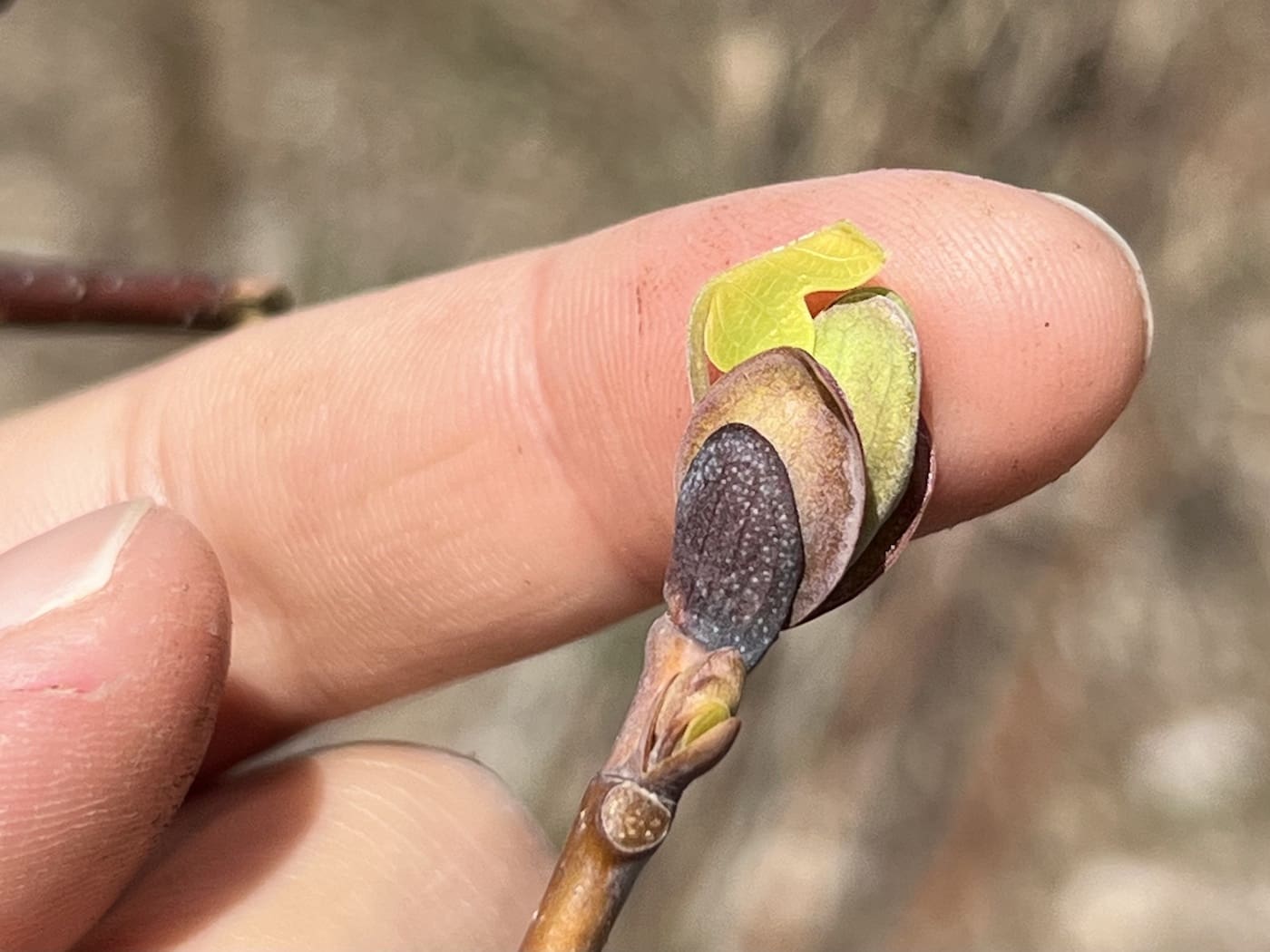
2023 in the Forest
As the year rounds out, it is time to reflect on the changes and growth we’ve seen in 2023. Nothing gives me quite as much pride, amazement, and faith in the power of change than our young Miyawaki forests. I was honored to share our work with the public in this short feature from the…

Halley’s Comet and Scenario 300
Halley’s Comet last hurtled around the Sun in 1986 and is expected to return in July of 2061. What will the Earth be like when the Comet returns? What kind of world do we want to greet it?

Intact ecosystems stabilize climate.
The more we disturb intact ecosystems, the less stable the climate that we have. Do we have systematic evidence-based resources to prove how natural ecosystems stabilize climate? Yes, we do! It would be helpful for science communicators and policymakers to have a resource with systematized evidence. For example:Primary forests have higher resilience against droughts than…
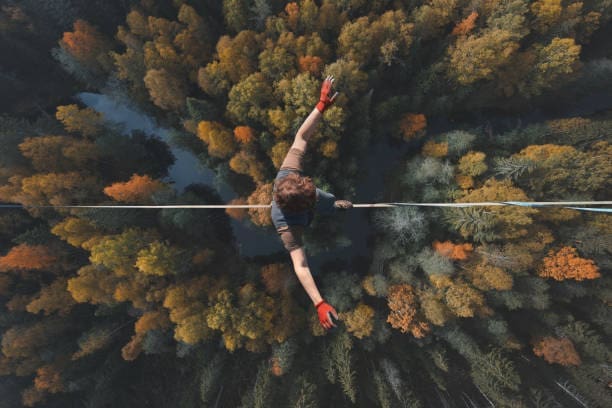
Save Mass Forests – Forest Protection Bills in MA under review in Nov. 2023
As renewable energy projects are implemented to decrease our reliance on fossil fuels, regulations suspended to help fast-track beneficial projects and combat climate change have allowed the deforestation of intact woodlands. This decreases our resilience, and makes very little sense in the long term. Simply put, we don’t need to cut down trees to put…
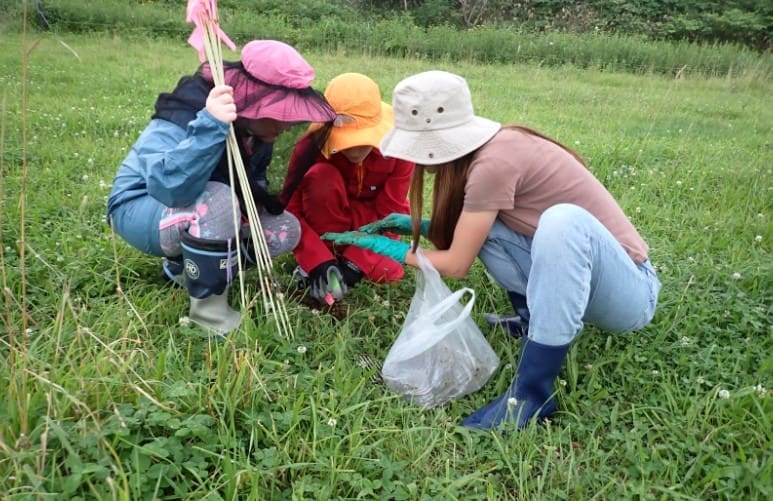
Biodiversity Field Day at Gladney Farm
Bio4Climate friends Tim Jones and Chie Morizuka manage a regenerative farm called Gladney Farm in Hokkaido, Japan. As the name suggests, there’s a lot to be glad about on the newly restored land! Tim and Chie share the love by hosting groups eager to learn from the farm animals and plants. Students of all ages…
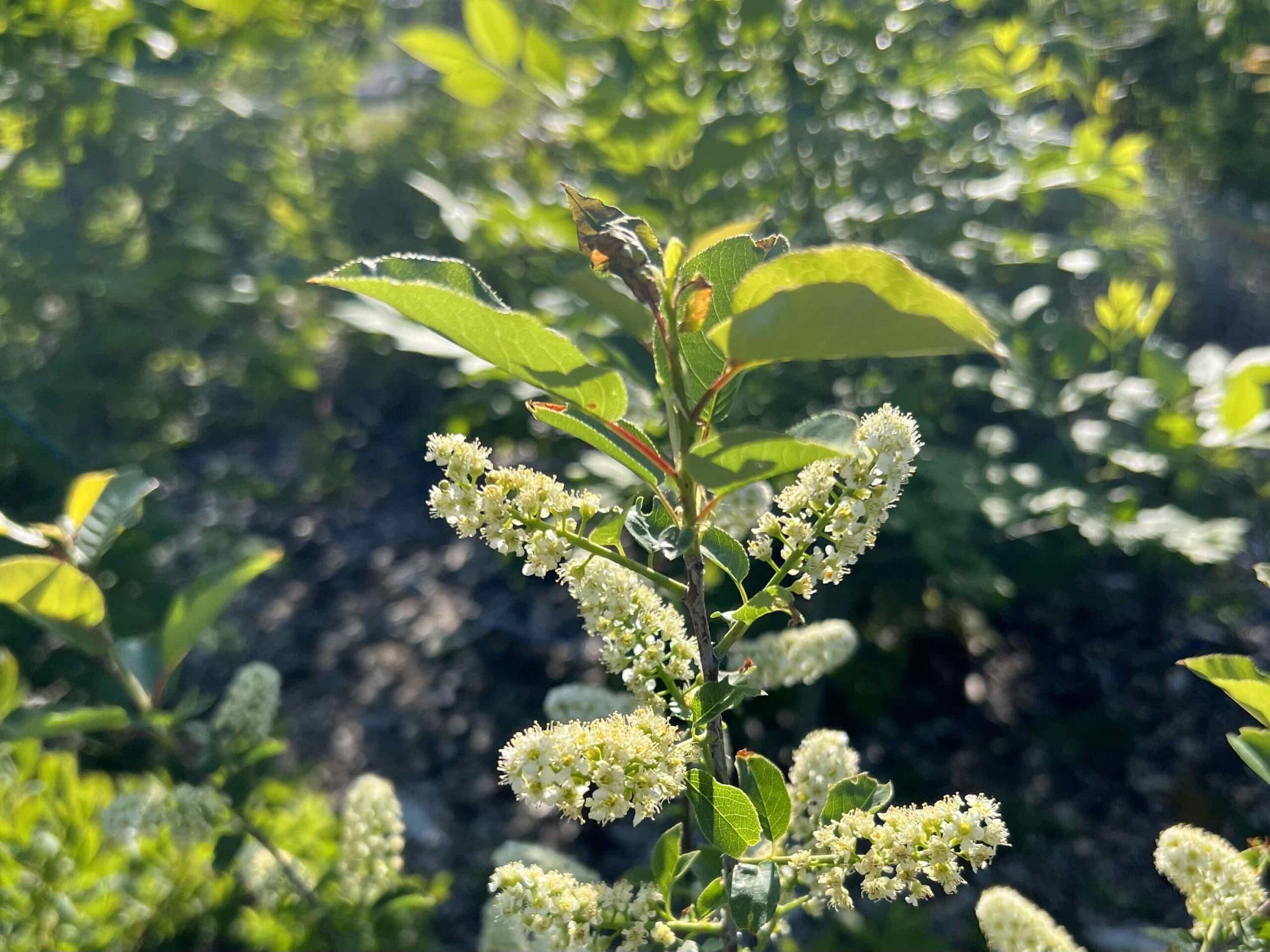
What are these tiny forests’ big benefits anyway?
What a thrilling week it has been! Since last Thursday’s New York Times article Tiny Forests with Big Benefits, my teammates and I at Bio4Climate have been buzzing with excitement at the recognition our forests and this type of restoration is getting. We are so thrilled by the enthusiasm of people’s responses, from interest in…
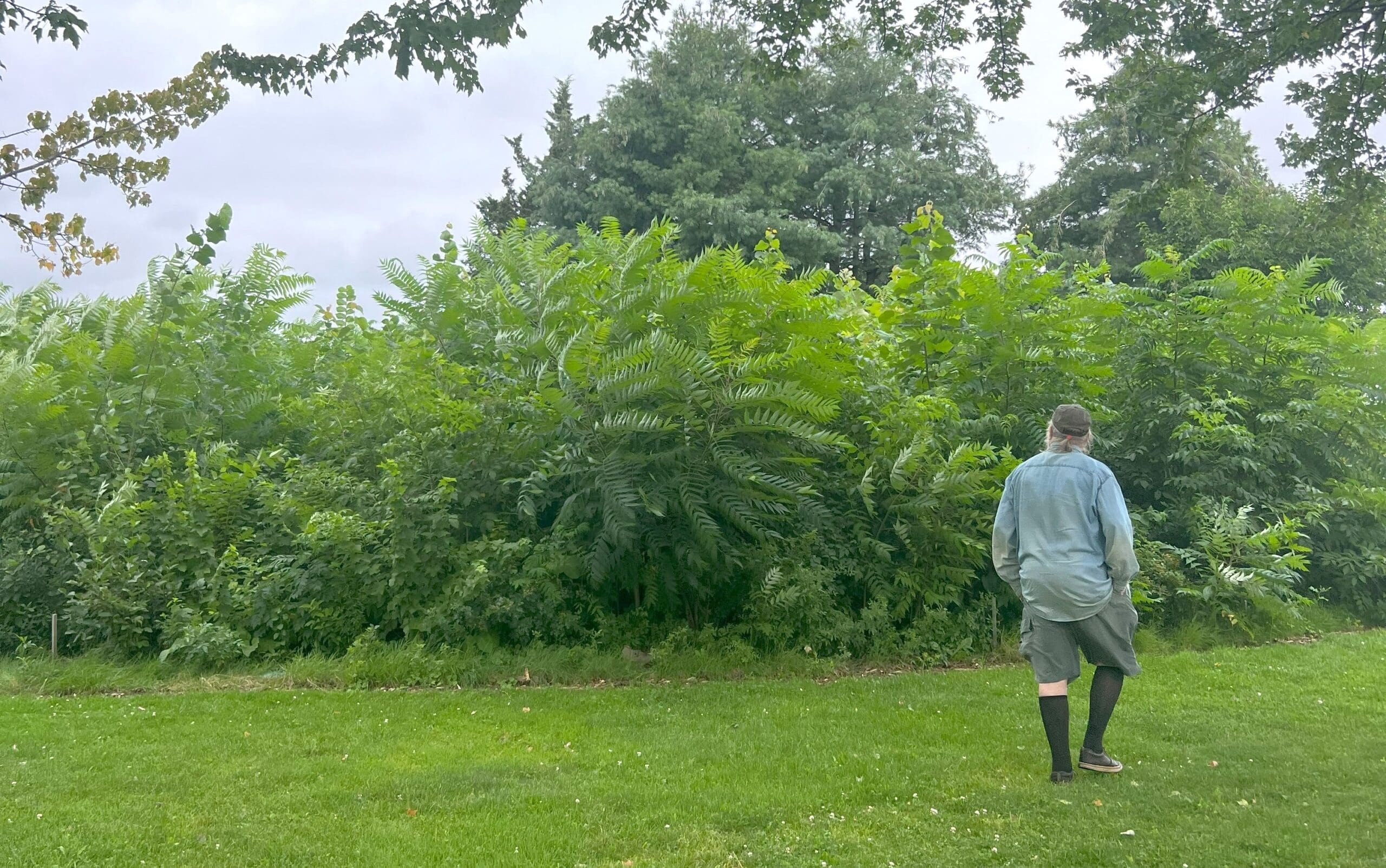
Our First Miyawaki Forest Turns Two
Our community grows alongside our first Miyawaki forest! In September of 2021, we planted our first Miyawaki forest – the first in the Northeastern U.S. – in Cambridge, Massachusetts. As the forest turns two, and demonstrates signs of resilient, abundant growth, the Bio4Climate team gathered with local forest enthusiasts to reflect and celebrate the ecosystem…

Bring Nature to the Global Fight to End Fossil Fuels – September 10 – 24
From now until September 24, we each have a critical opportunity to spread the message that #NatureCools in cities throughout the world, on social media, and in the mainstream media. Join us in showing people that restoring and protecting nature cools the climate, hydrates the land to prevent wildfires, drought and flooding, and reduces extreme weather.…
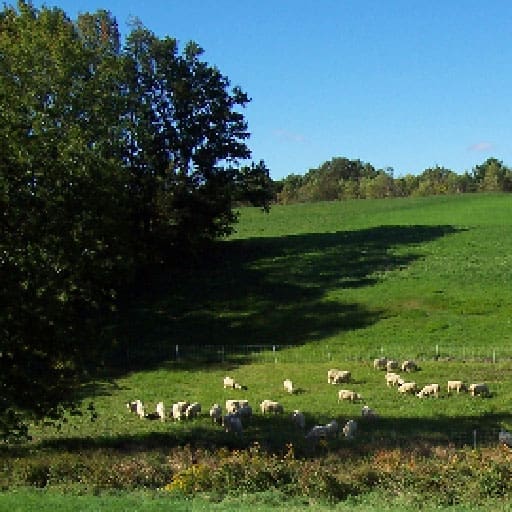
Life Saves the Planet
Life Saves the Planet The Bio4Climate Blog “Life Saves the Planet” is more than just a blog—it’s our philosophy and a partnership with GBH public television’s Lowell Lecture Series. In the search for answers to climate change, we look to the interconnected living systems that sustain our planet. These biodiverse systems shape our atmosphere, regulate temperature,…
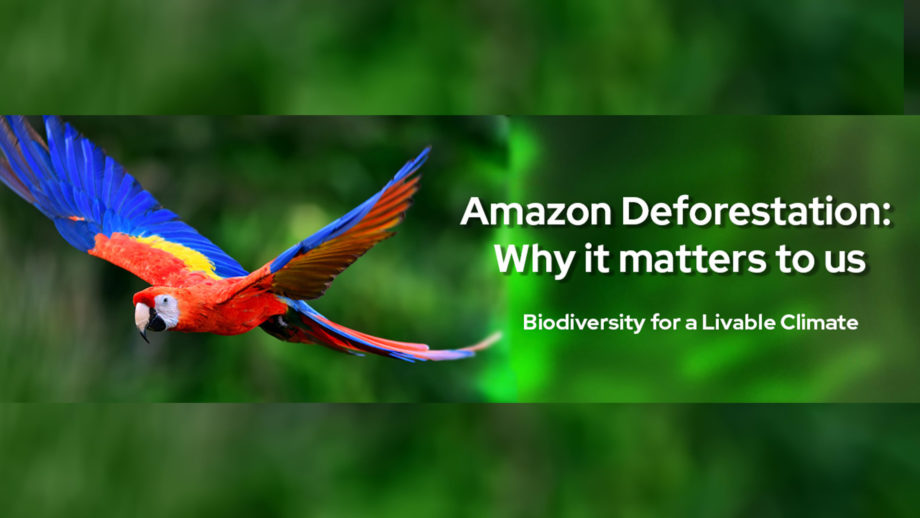
Amazon Deforestation: Why it matters to us
On Thursday, April 28 at 6pm ET, join Atossa Soltani, Rob de Laet, and moderator Jon Schull for Amazon Deforestation: Why it matters to us. The Amazon Rainforest is known as the “lungs of the earth” because it draws in carbon dioxide and breathes out oxygen. But it is also the biological heart of the…
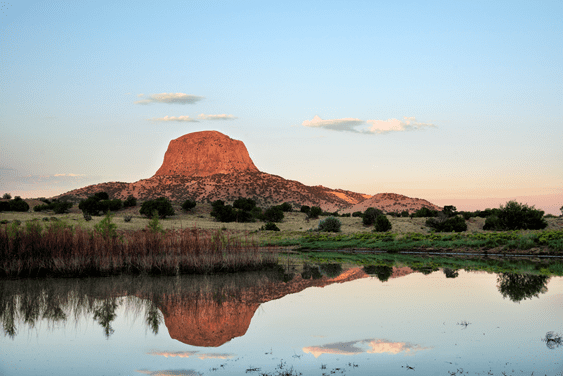
Our Underrated Climate Ally: The Small Water Cycle
Cabezon Peak after rain, Photo by John Fowler (CC BY 2.0) Although climate change is a global issue, it can and must be addressed locally. Our overall climate is shifting drastically, but local climates are also changing, and they don’t always get the same amount of attention. Local climates change when the environment is drastically…
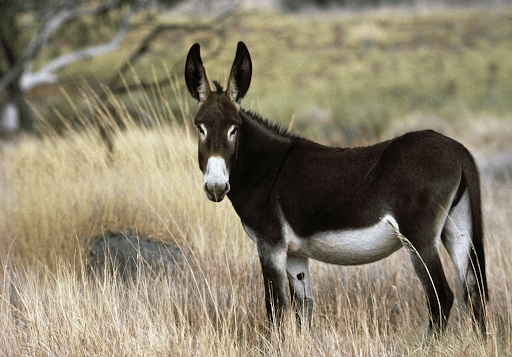
Kachana Station: A Home for Donkey-Led Restoration
In northwestern Australia, far from roads or major cities, a herd of wild donkeys carries a valuable promise. This remote region is the Kimberley, home to Kachana Station, a family-owned holistically managed landscape. The Henggelers have overseen Kachana Station for decades, and their management techniques have brought benefits for the soil, wildlife, and local climate. …
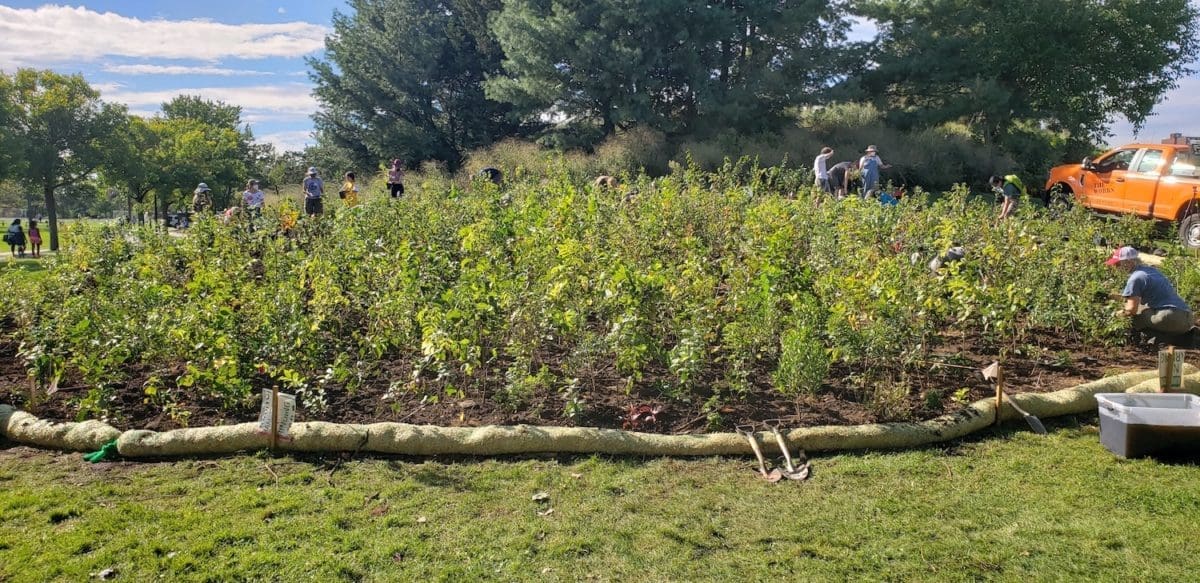
Miyawaki Forests and the Meaning of Regeneration
As many people know through firsthand experience, we planted the Northeast’s first Miyawaki Forest last weekend. After several months of planning, discussion, and organization, we gathered in Danehy Park in North Cambridge to create the forest. This was the part I participated in, but like so much of our work at Biodiversity for a Livable…
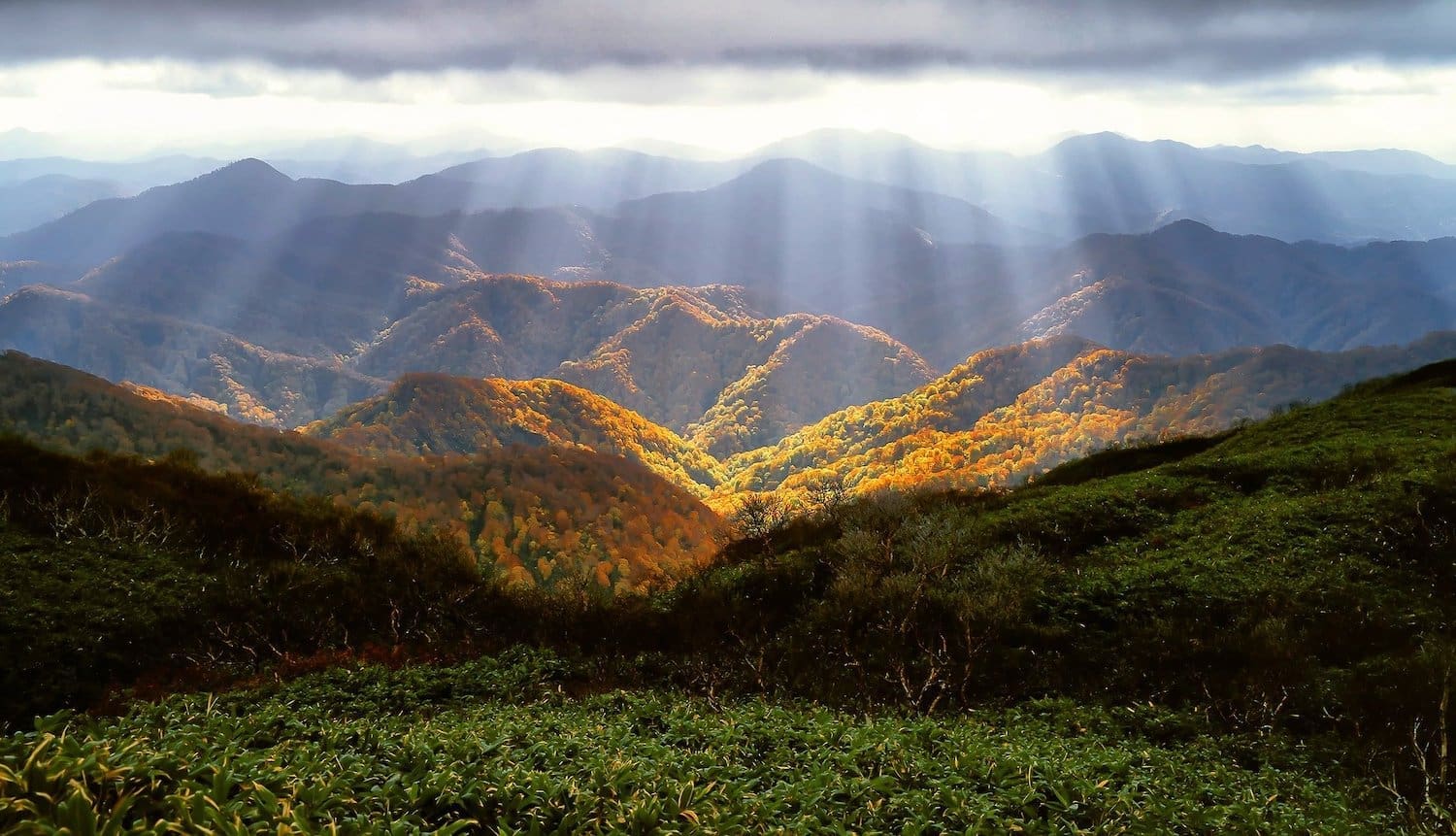
Climate Is About Far More Than Carbon Dioxide
“We have to do everything we know how to do to address climate change.” – Sir Nicholas Stern But what is “everything we know how to do”? What does “everything” mean? Who are “we”? Until very recently “everything” meant reducing emissions and pulling excess carbon out of the atmosphere. That has slowly begun to change,…
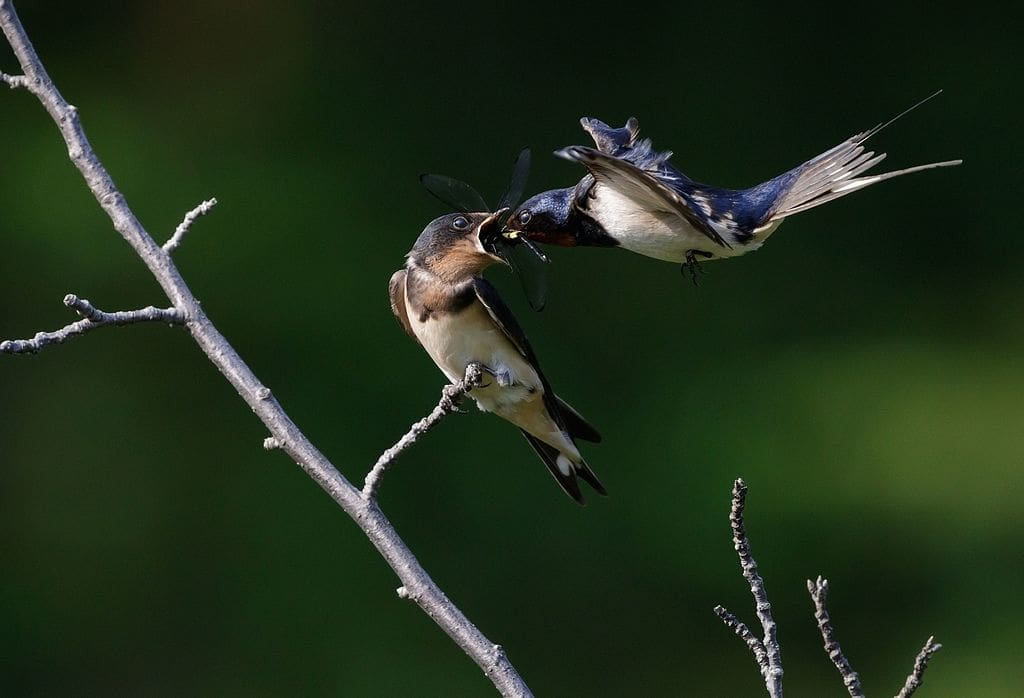
Barn Swallows and the Tyranny of Small Decisions
Barn Swallows, birds who eat insects as they scurry across the sky, are disappearing. This isn’t surprising, I suppose, given that they are among the 2.9 billion birds lost across species in the United States – representing one third of the bird numbers we had 50 years ago. What did surprise me is how we…
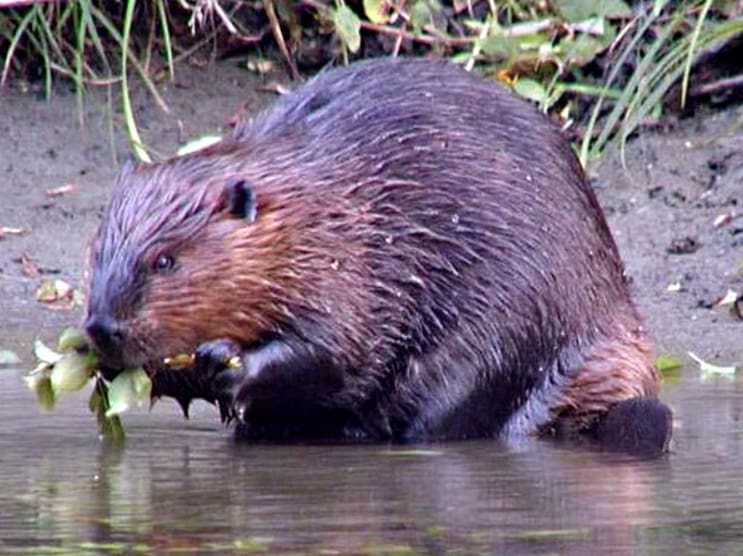
Beavers As Partners – Focus of the Valley Green Journal
FIX LINK AT BOTTOM Jan Lambert’s Quick Take: ‘Beavers As Partners’ is a community service focus of The Valley Green Journal in helping communities find non-lethal solutions to human-beaver conflicts, especially with the use of beaver deceiver flow devices to prevent flooding. Abstract: Beavers As Partners is a campaign to raise awareness of the critical…
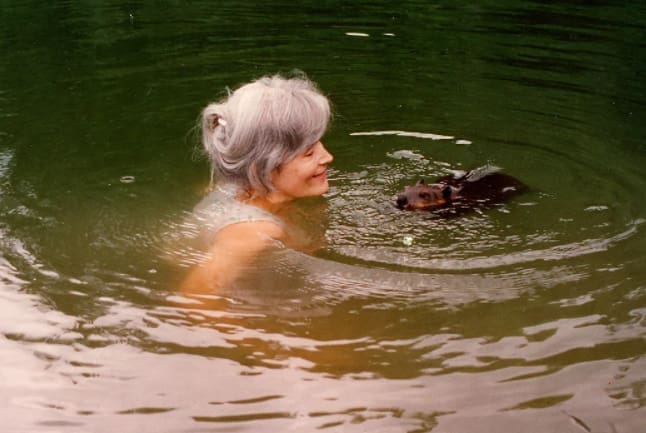
Help Save Beavers!
Jan Lambert’s Quick Take: If you love beavers you need to meet Sharon Brown, a beaver advocate who raises orphaned beaver kits as their “mother” and even takes her babies for swimming lessons! Abstract: Beavers: Wetlands & Wildlife (BWW) is an educational nonprofit that has been helping people enjoy the great benefits of coexistence with…
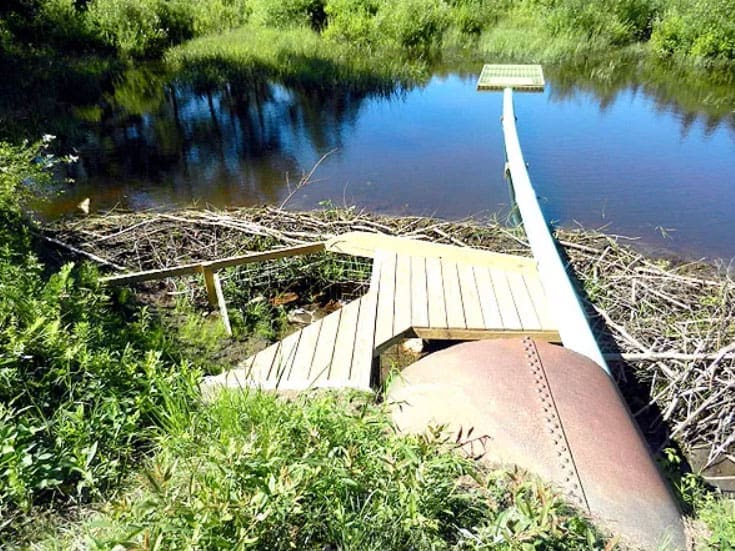
State-of-the-Art Beaver Deceiver™ in Marlboro VT
FIX LINK Jan Lambert’s Quick Take: Beavers are nature’s water engineers; they create and preserve wetlands vital to ecosystems. When beavers and human activities conflict with each other, there can be a win-win solution for both the beavers and the humans! Be sure to check out Skip’s website! Abstract: A win-win solution to human-beaver conflict…
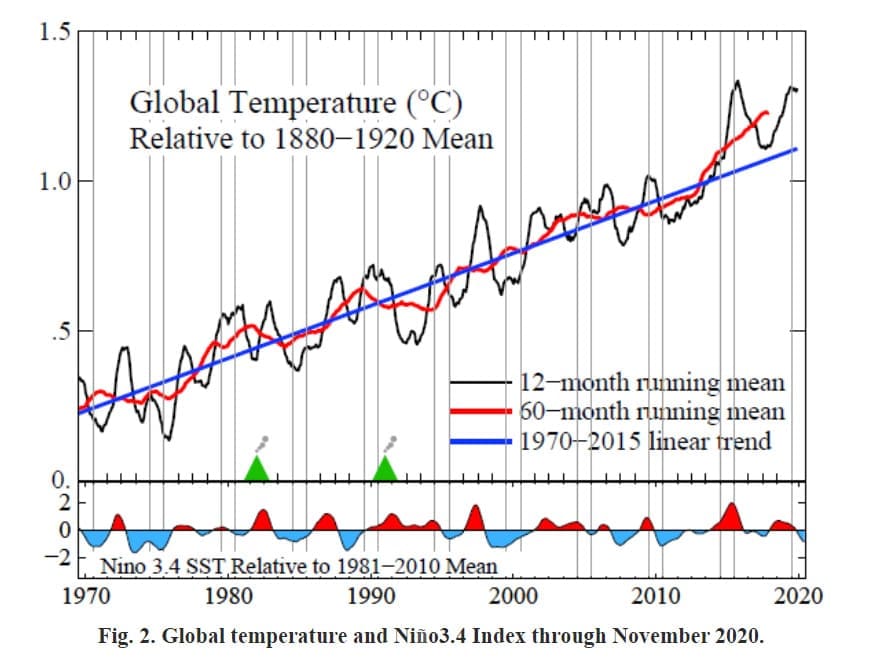
Real Climate Reality
Based on widely accepted scientific measurements, global emissions reduction efforts, while essential, have not succeeded in reducing levels of atmospheric greenhouse gases. The annual rate of carbon released into the atmosphere is accelerating (for many reasons which need not be discussed here). Reducing emissions and building out alternative energy are necessary but insufficient to address…
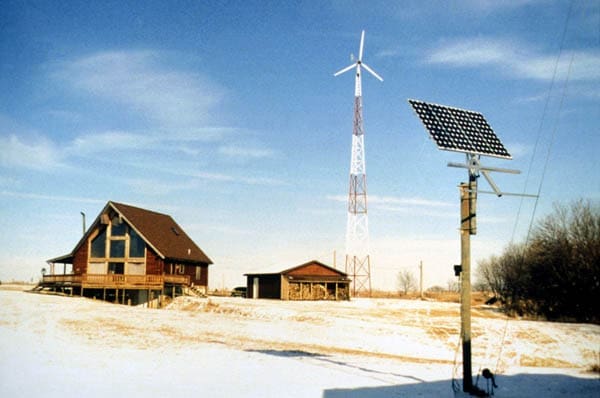
Reducing Greenhouse Gas Emissions Won’t End Global Warming
Solar panels on rooftops. Hybrid and electric vehicles. Meatless Mondays. What do all of these indicators of societal progress have in common? They are just some examples among the many widely attainable, lifestyle modifiers for reducing energy consumption in our fossil fuel-addicted world. But while replacing SUVs with hybrid cars and changing lifestyle habits to…
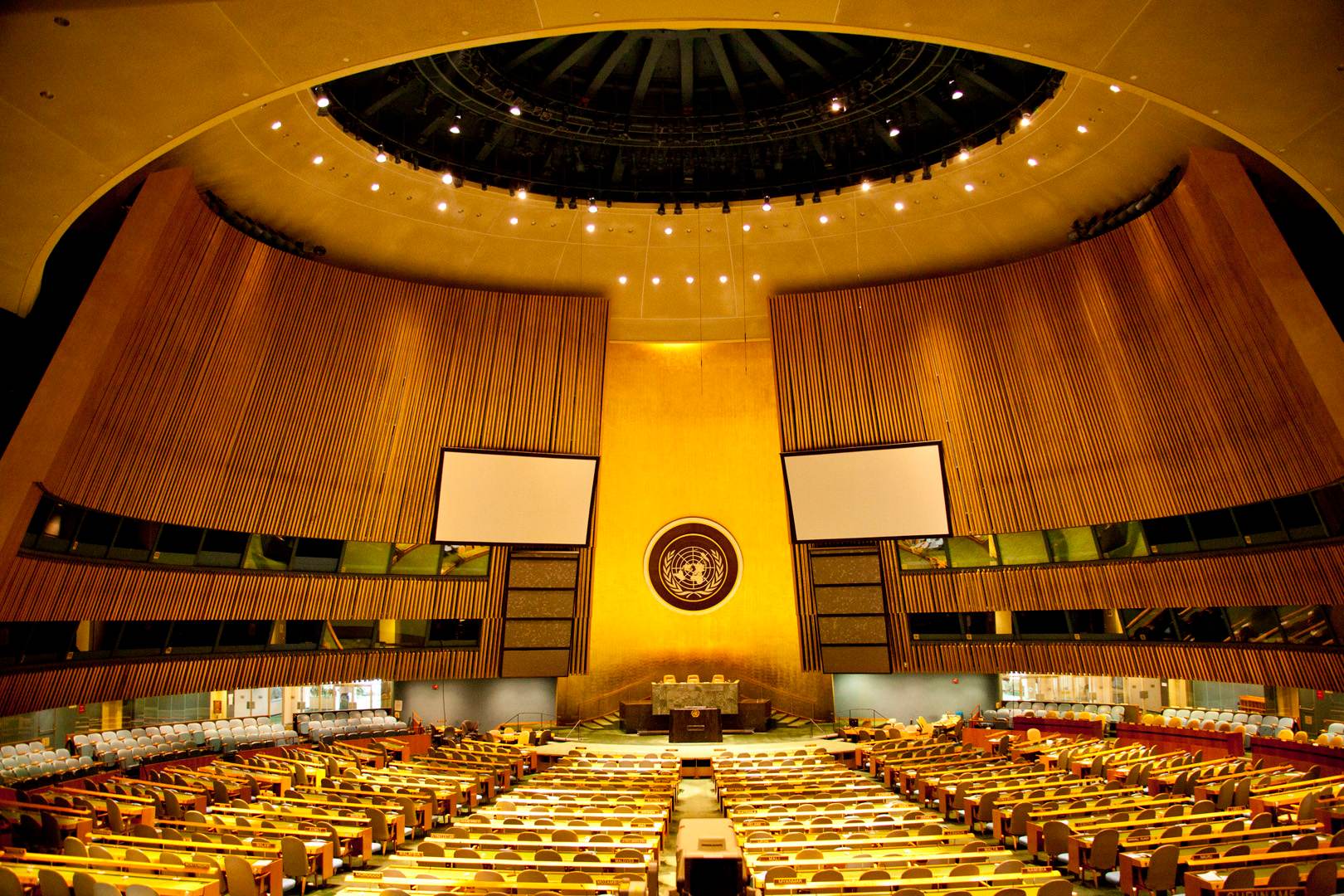
A Call for Sanity
In September, members of the United Nations will convene a round of climate change negotiations. It’s not hard to guess what is on the table: greenhouse gas emissions reductions. Yet after almost three decades of effort, during which atmospheric carbon concentrations have only gone up, another meeting focused primarily if not exclusively on emissions reductions appears to…
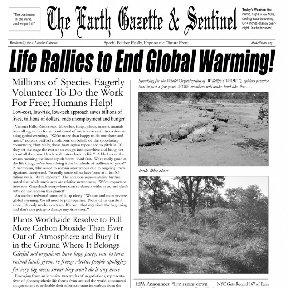
Good news!
This enlightening (and humorous) front page is destined to be a collector’s treasure!
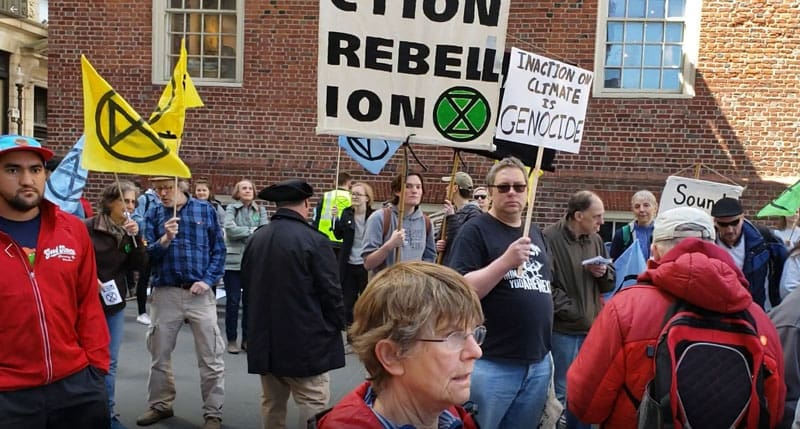
Changing the Climate Conversation
“Everything is connected to everything else.” – Barry Commoner, The Closing Circle Like most climate activists, for a long time I thought that greenhouse gas (GHG) emissions were THE driving force behind climate change. It followed that reducing emissions was our overriding goal. A steady stream of messages from both the climate movement and the mainstream…

Without vast tracts of grasslands, what can we do in New England?
To pull carbon out of the atmosphere and sequester it in soils, we need to restore biodiversity: that’s the foundation of the whole show. One of the most important visible elements from the perspective of ecosystems is to cover bare ground. Bare ground doesn’t absorb water, it breaks the water cycle, it interferes with the…
